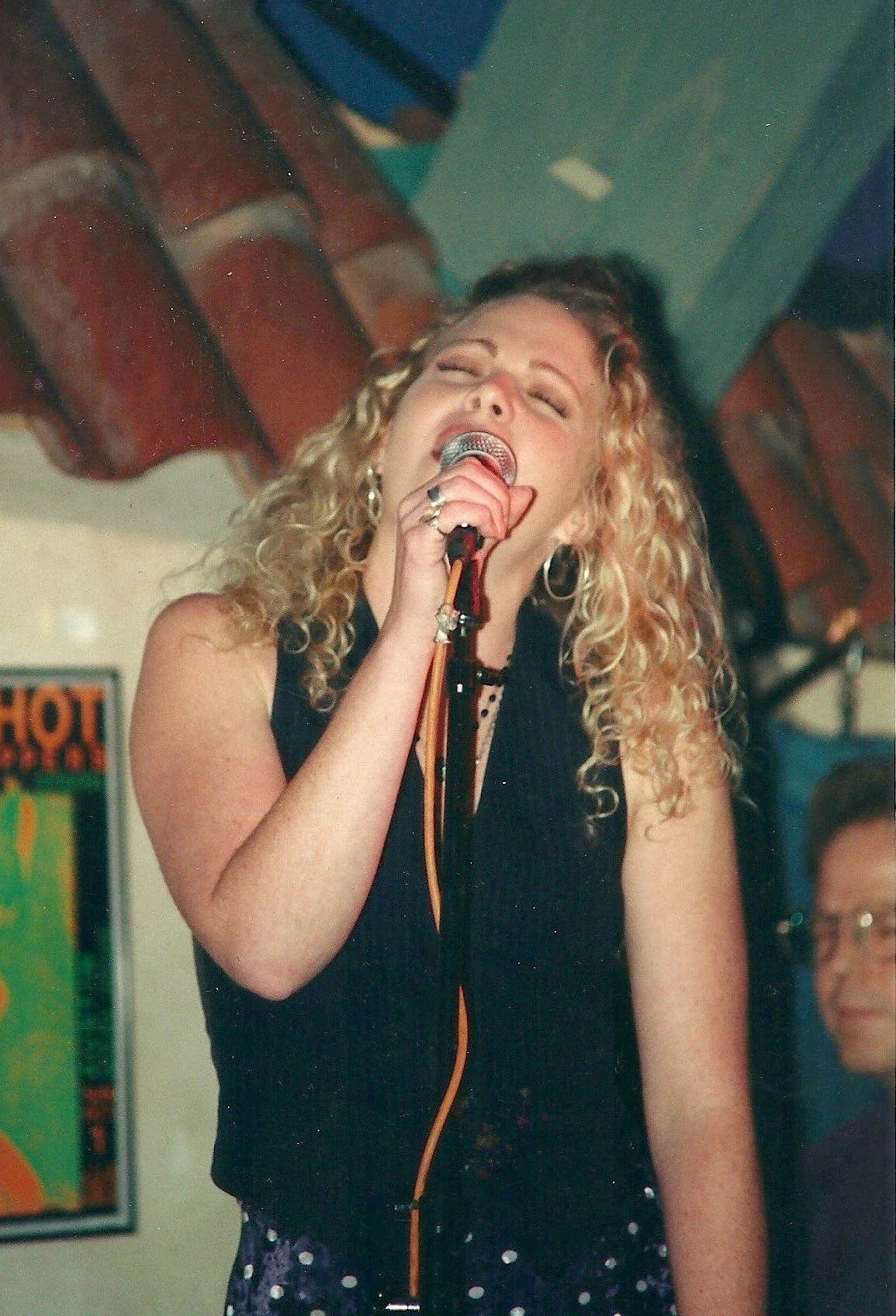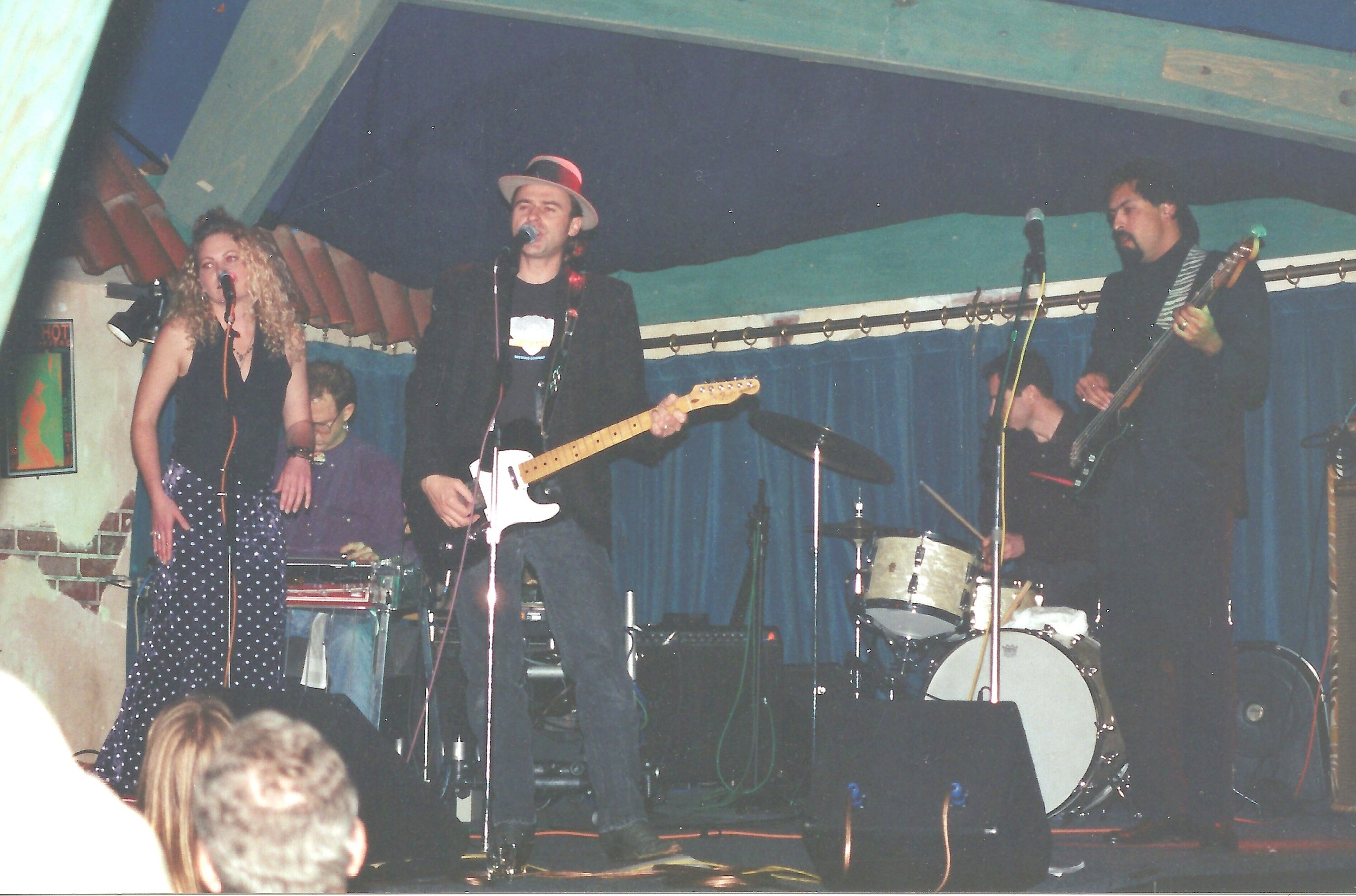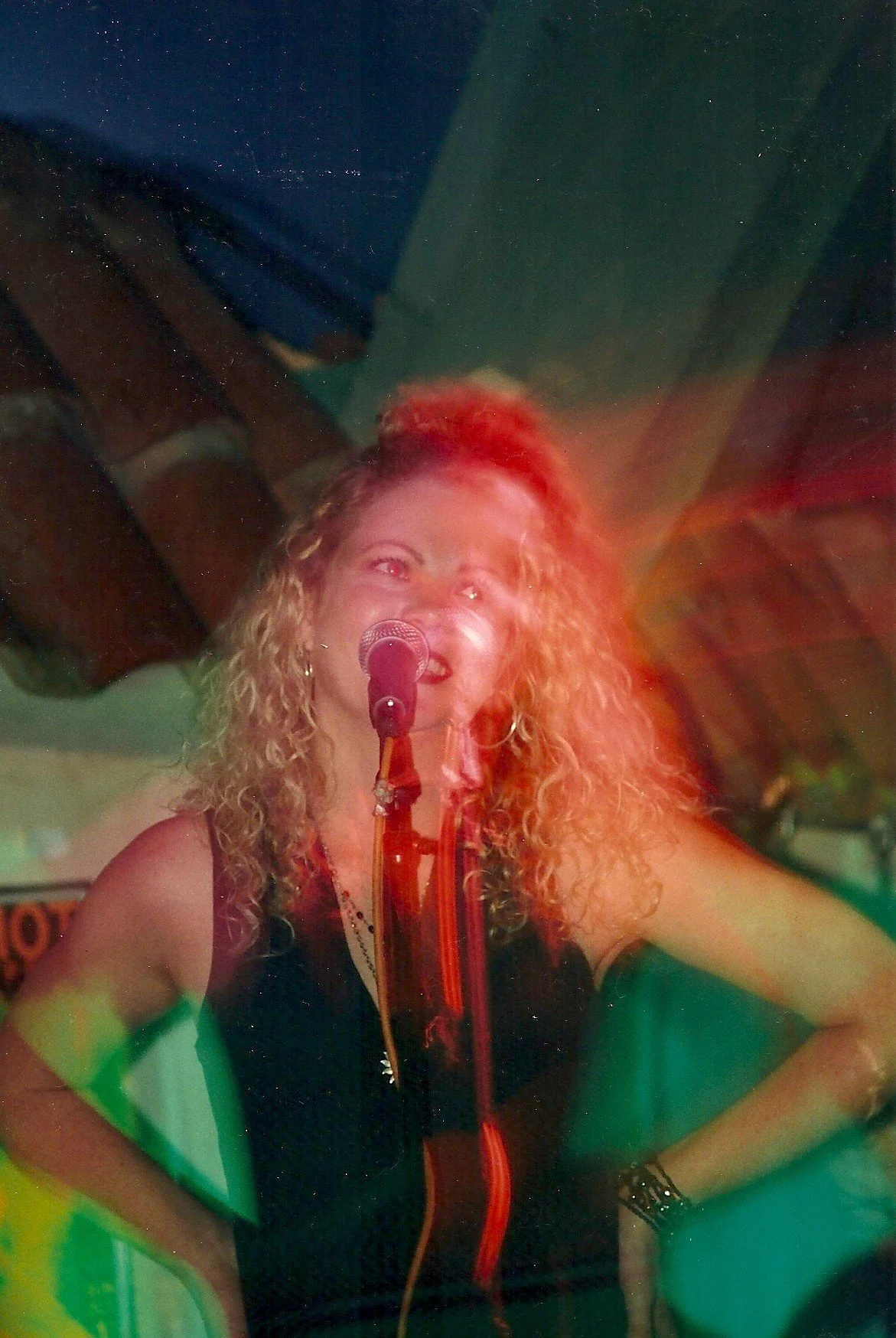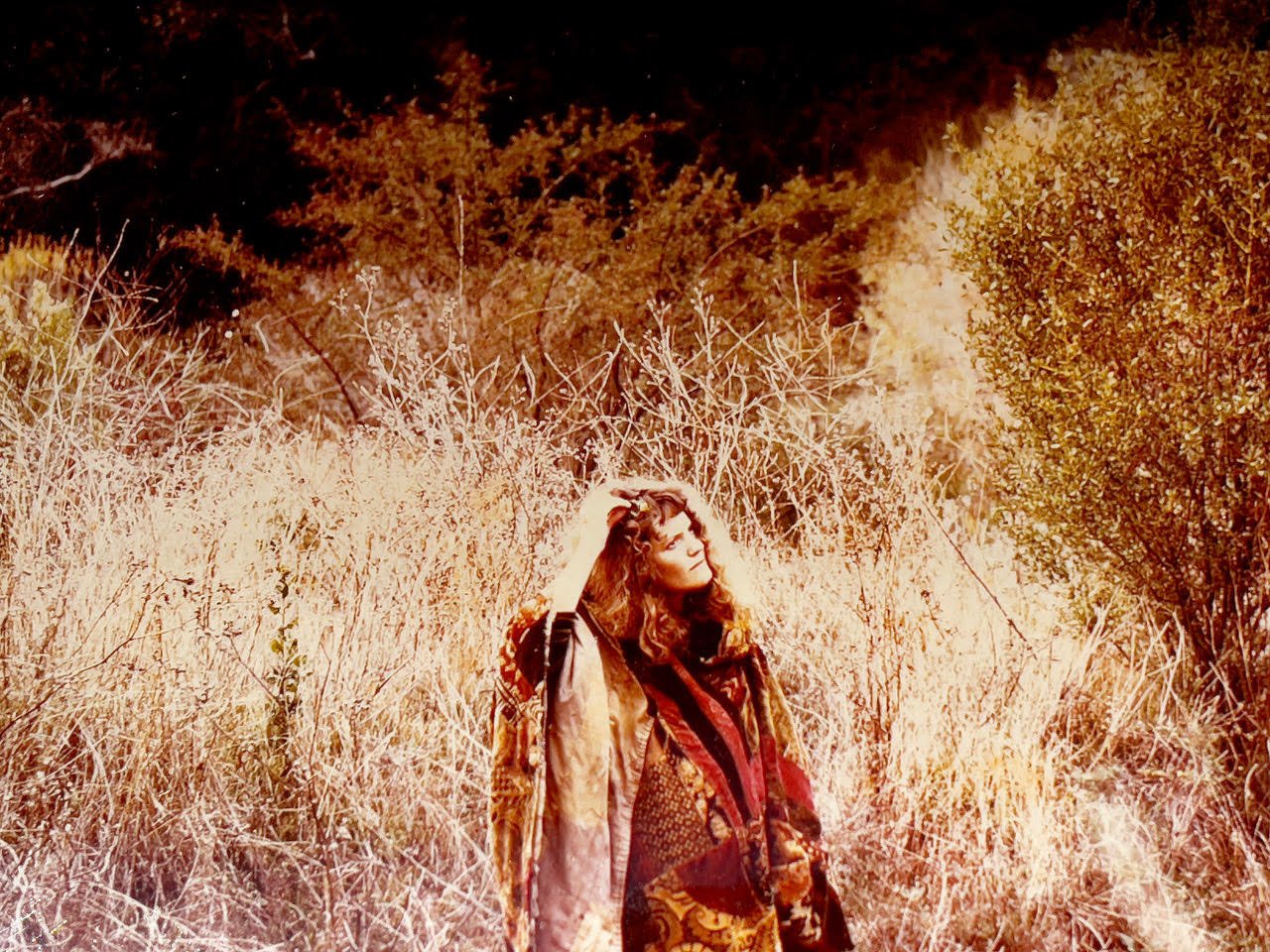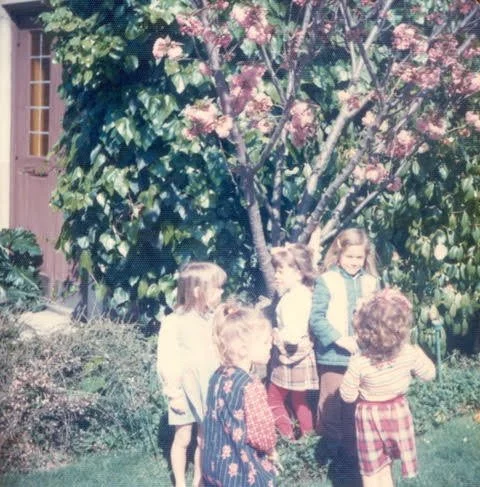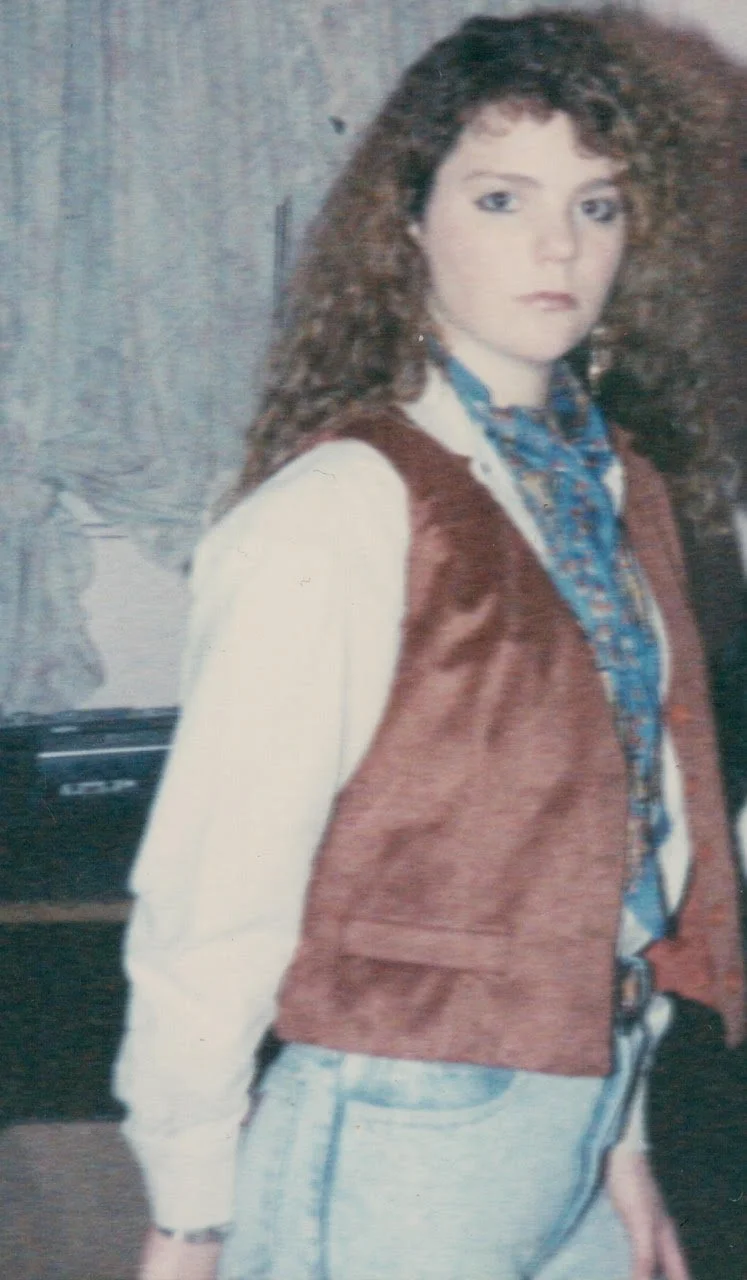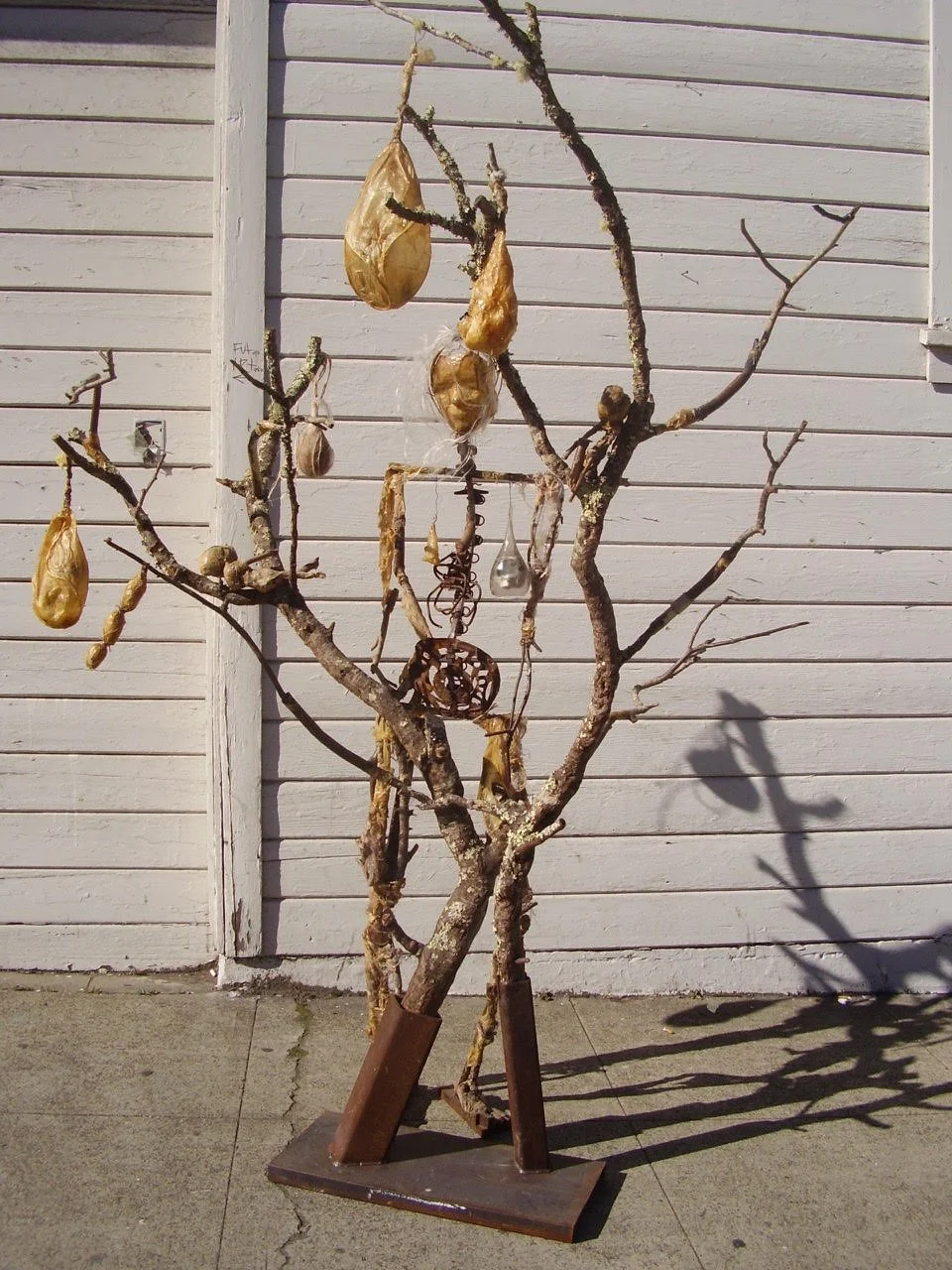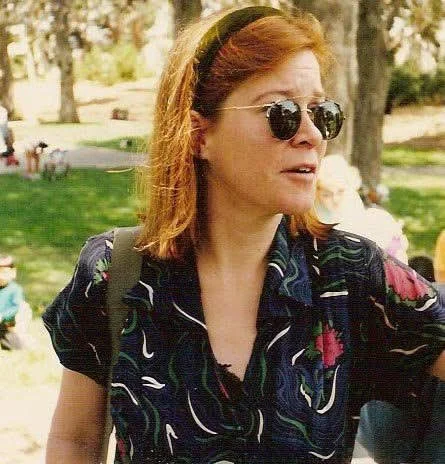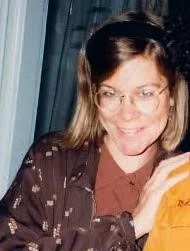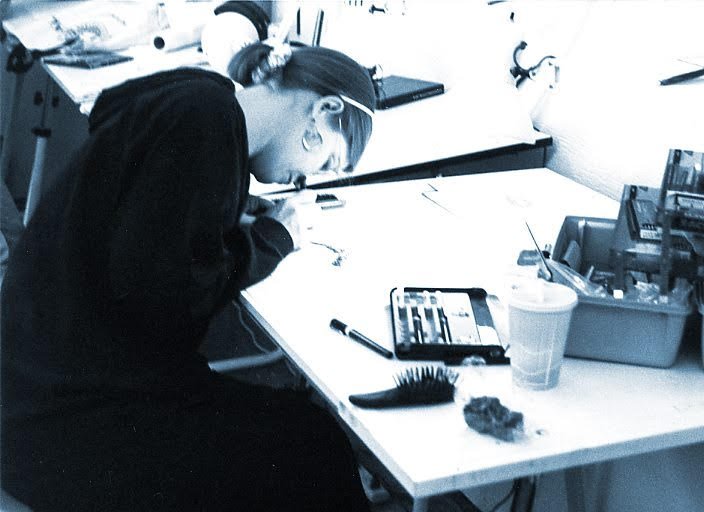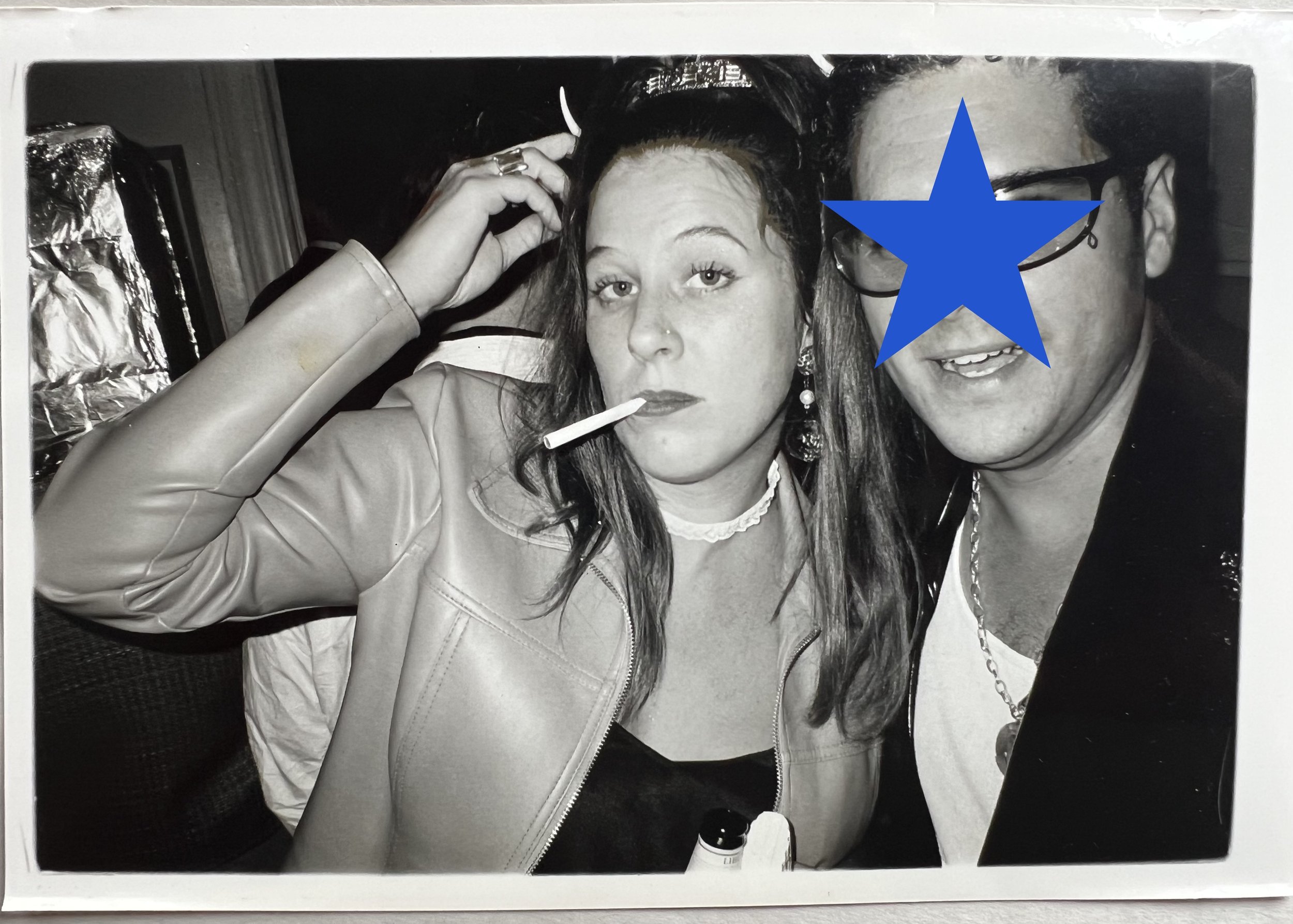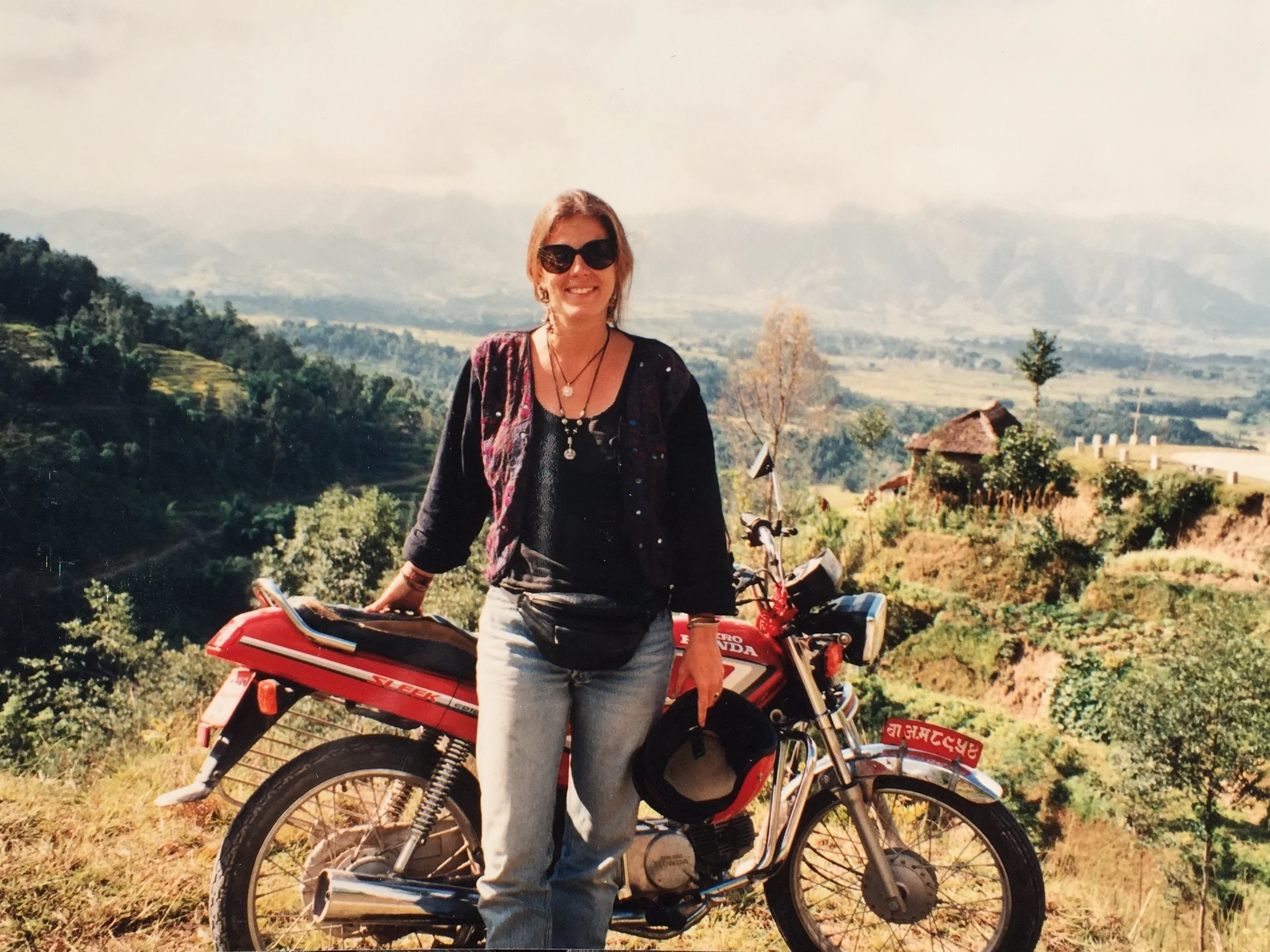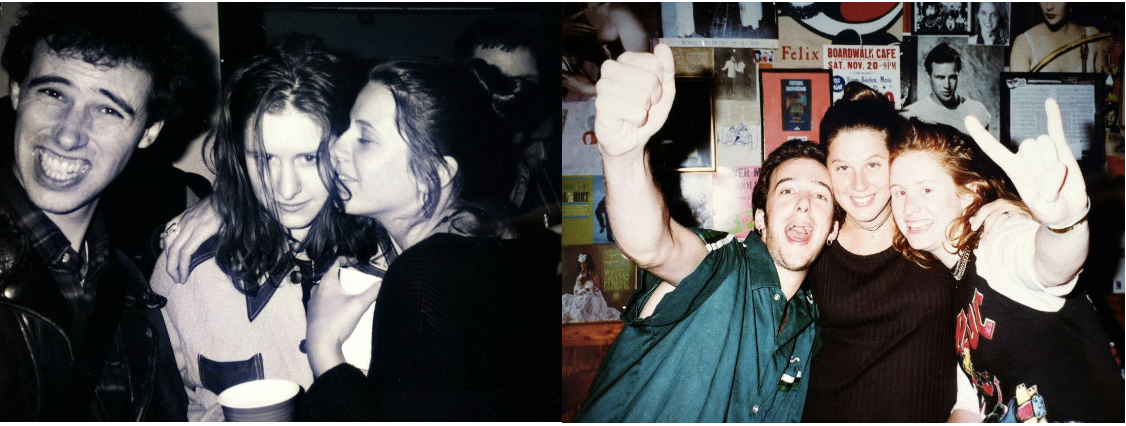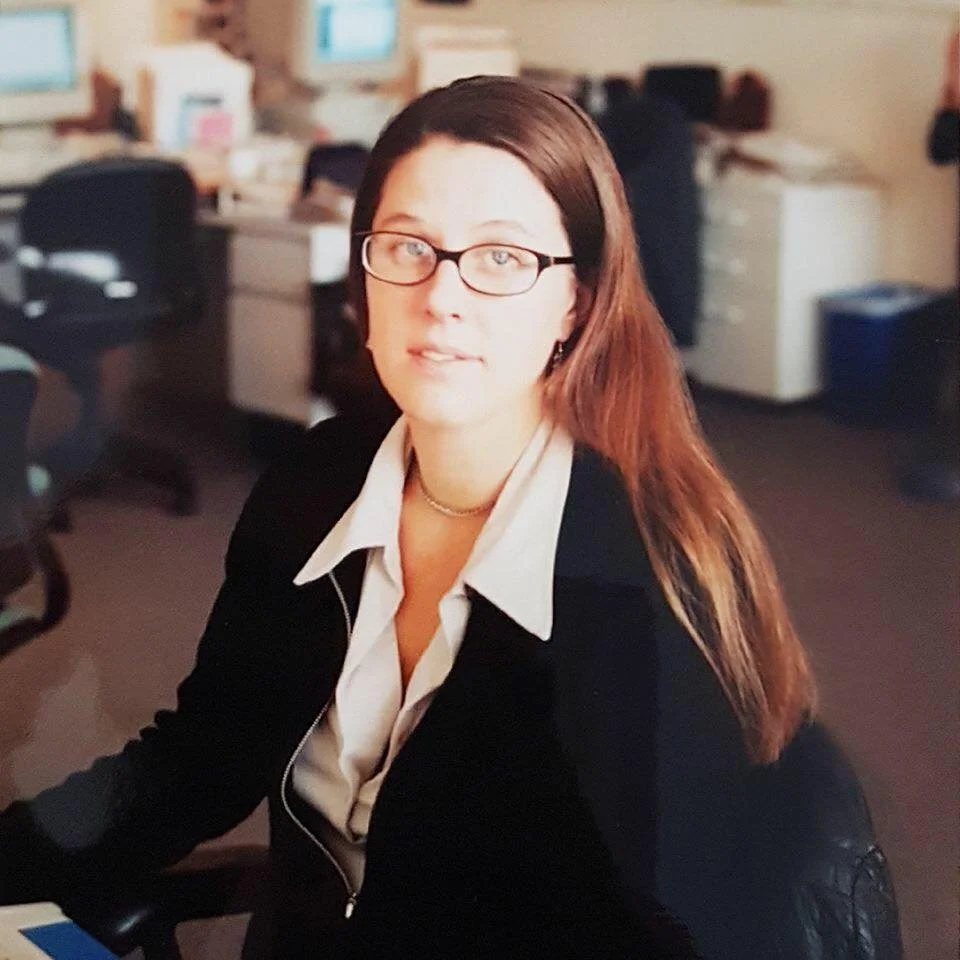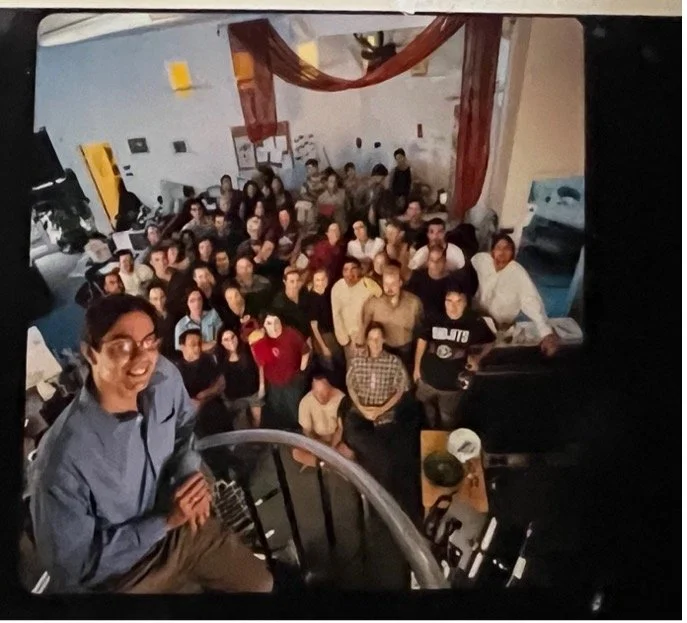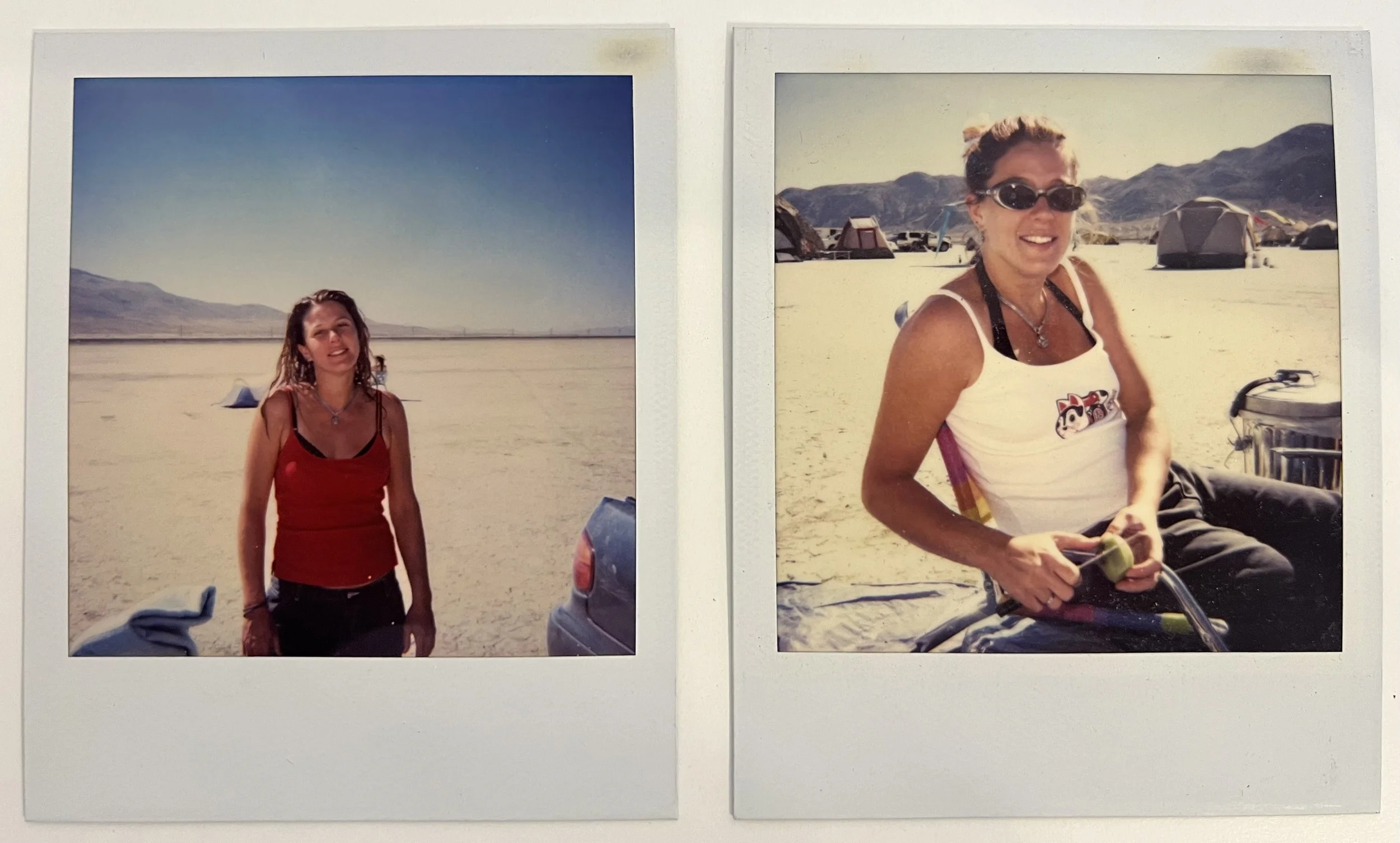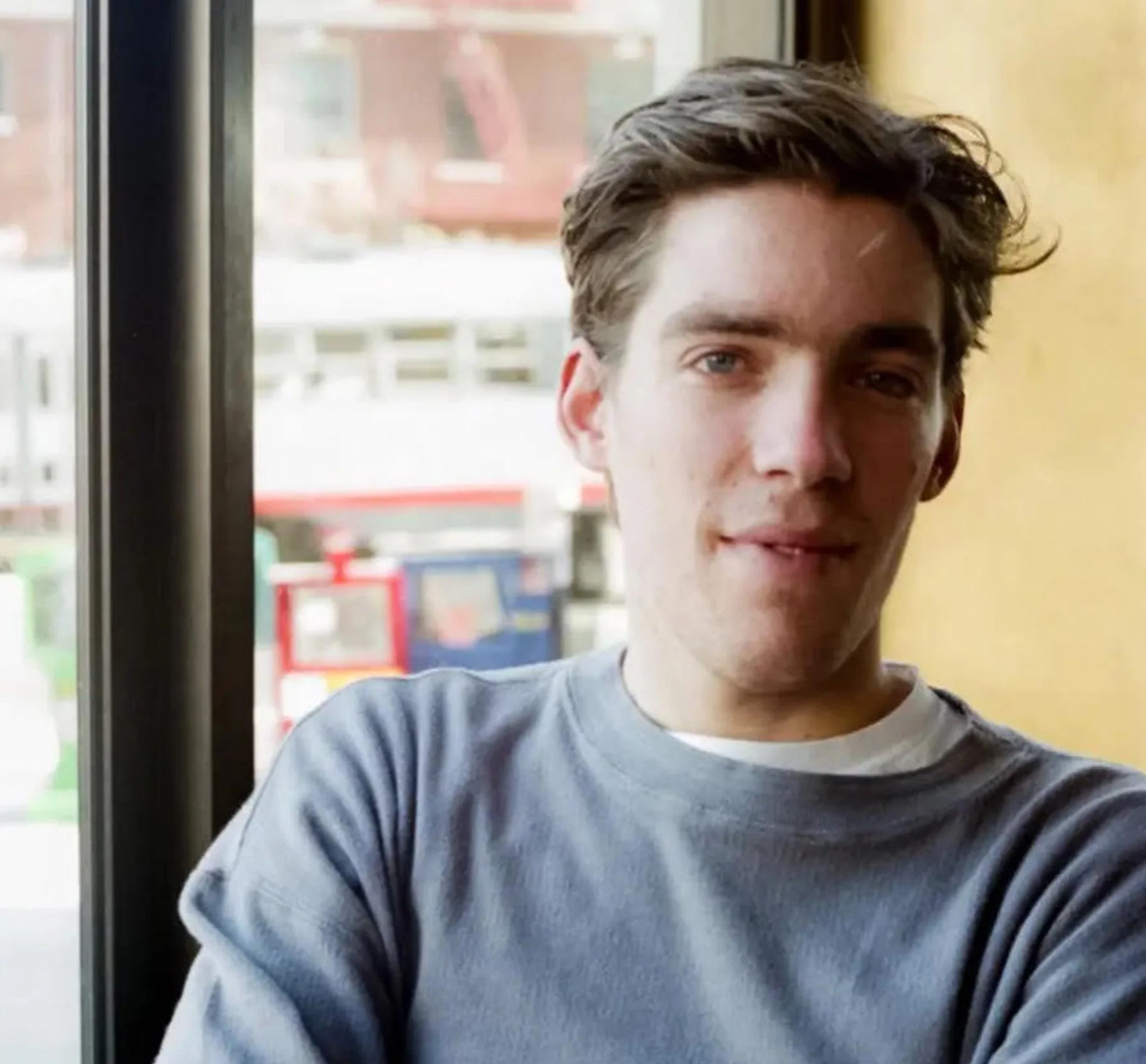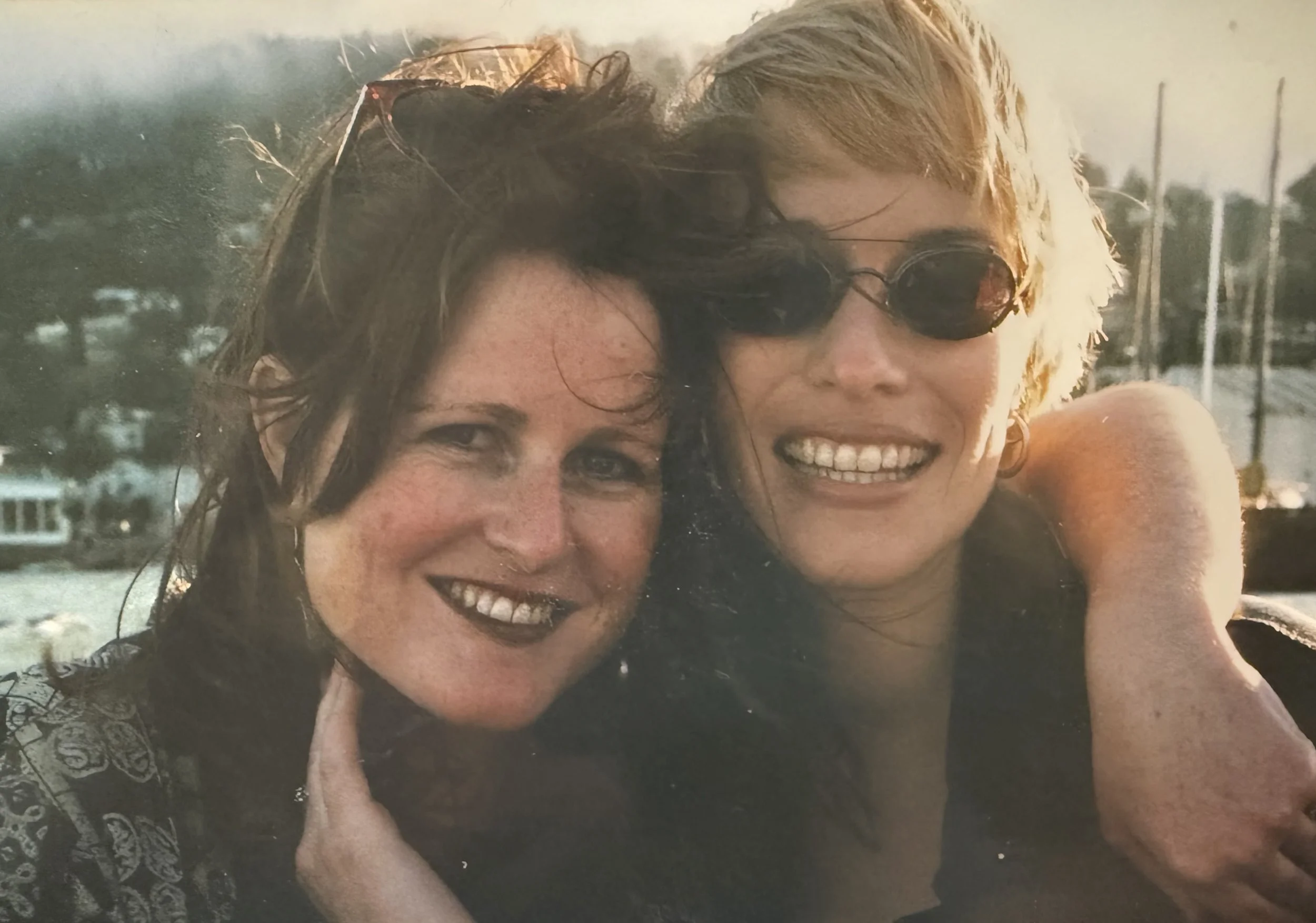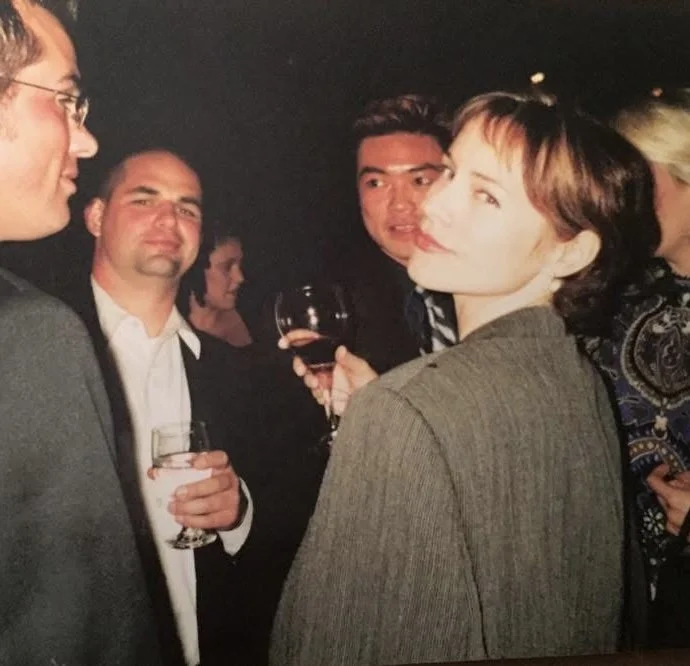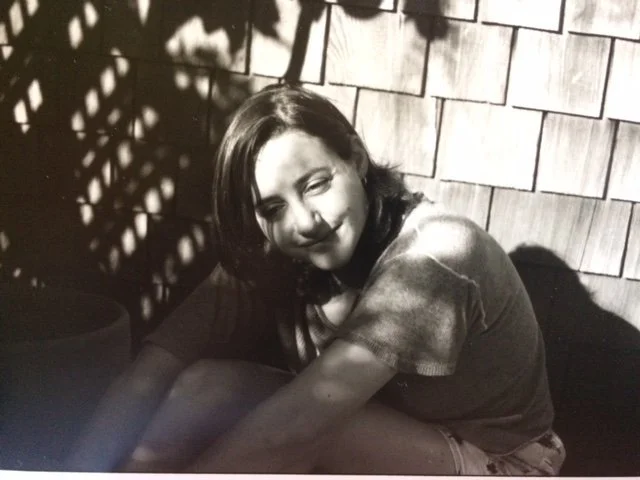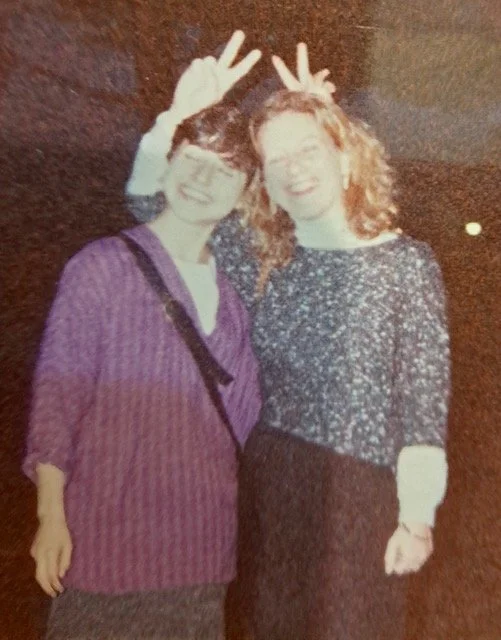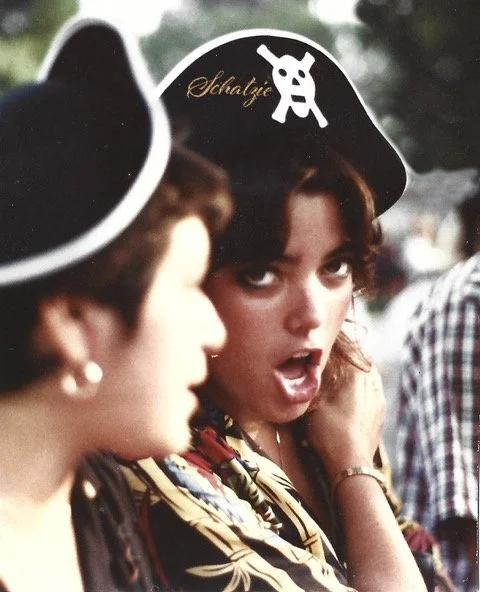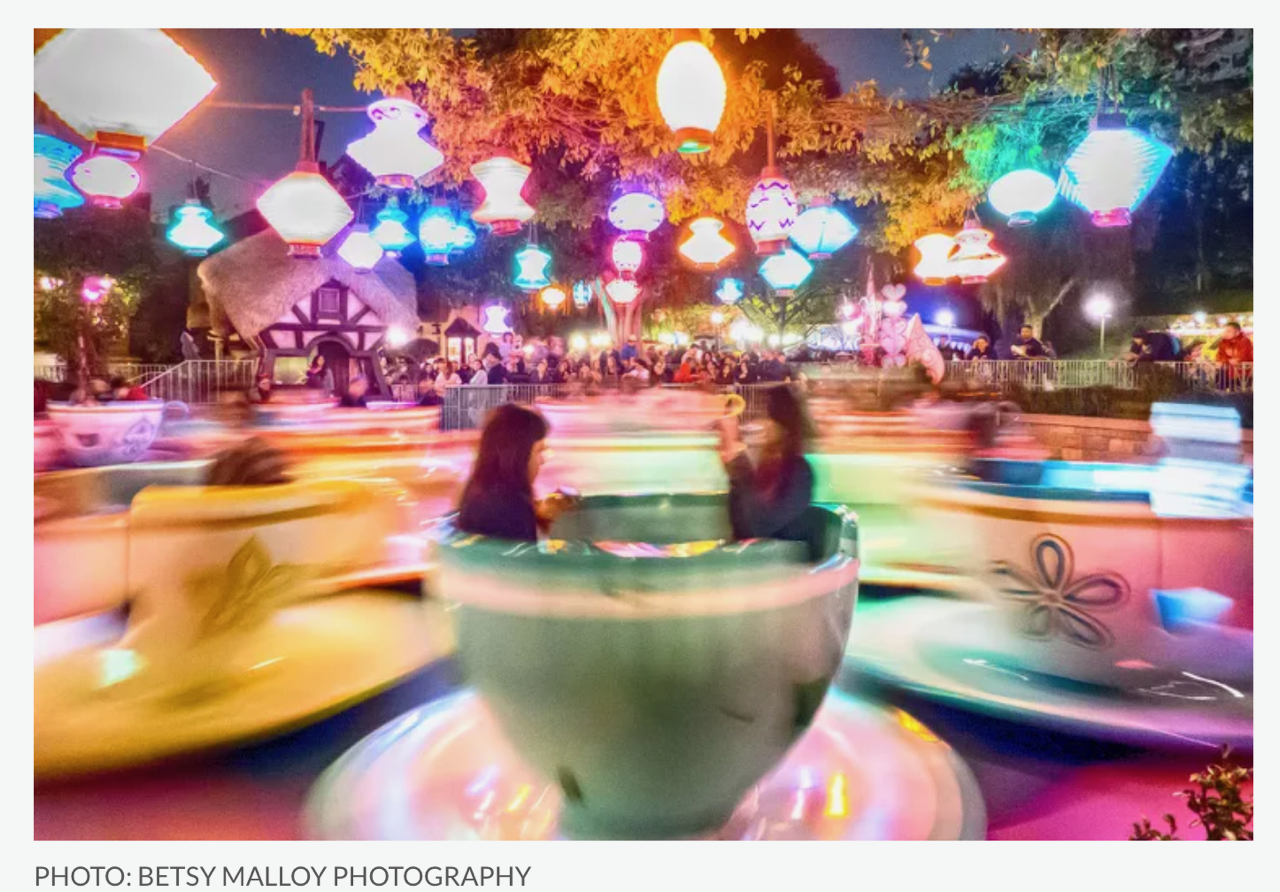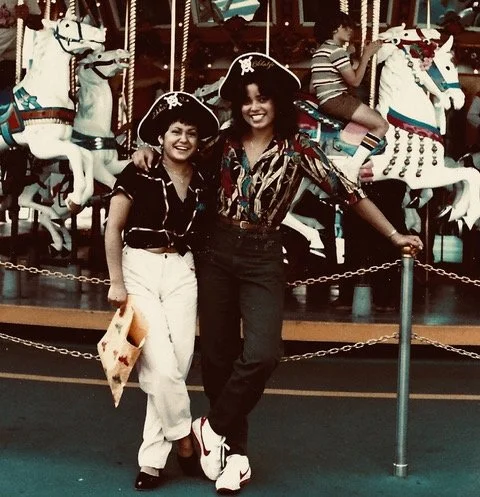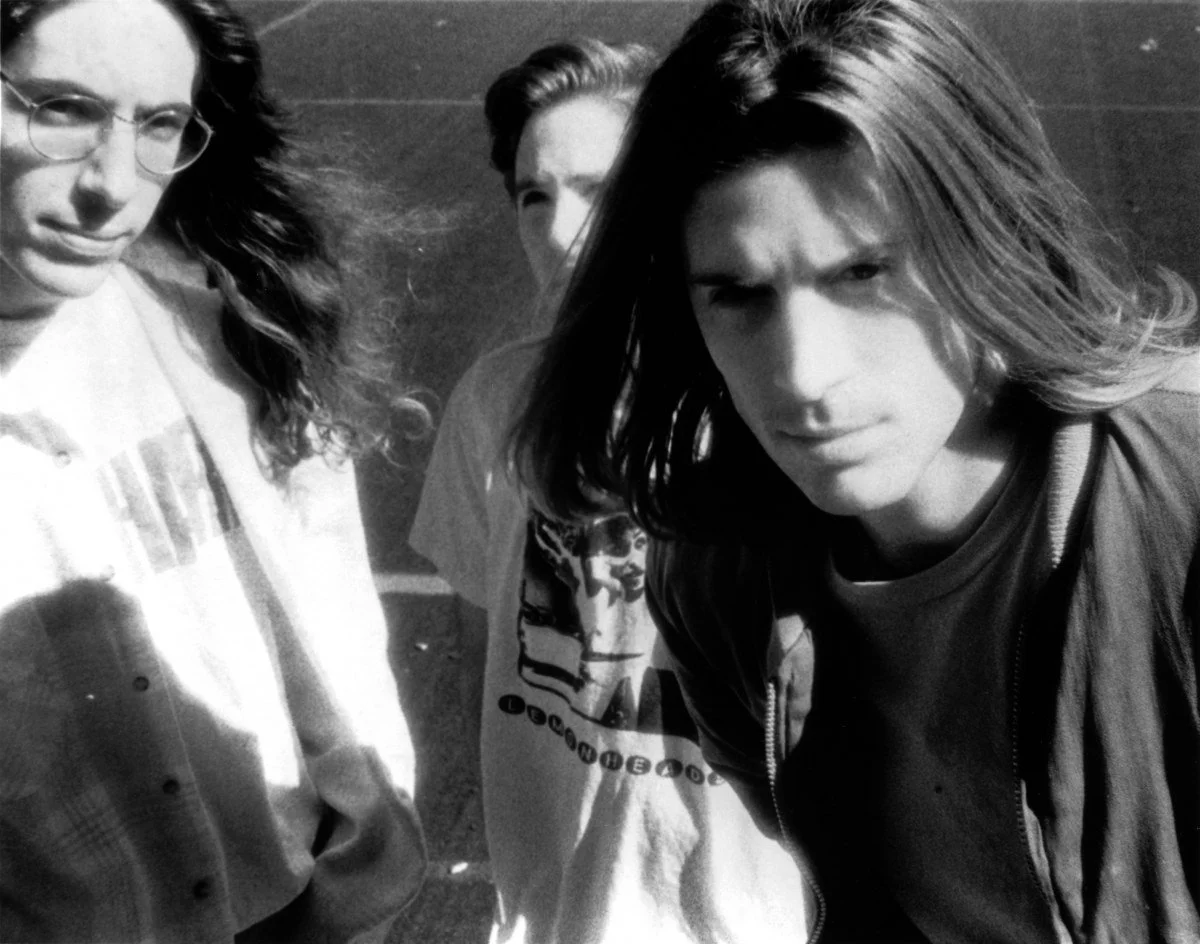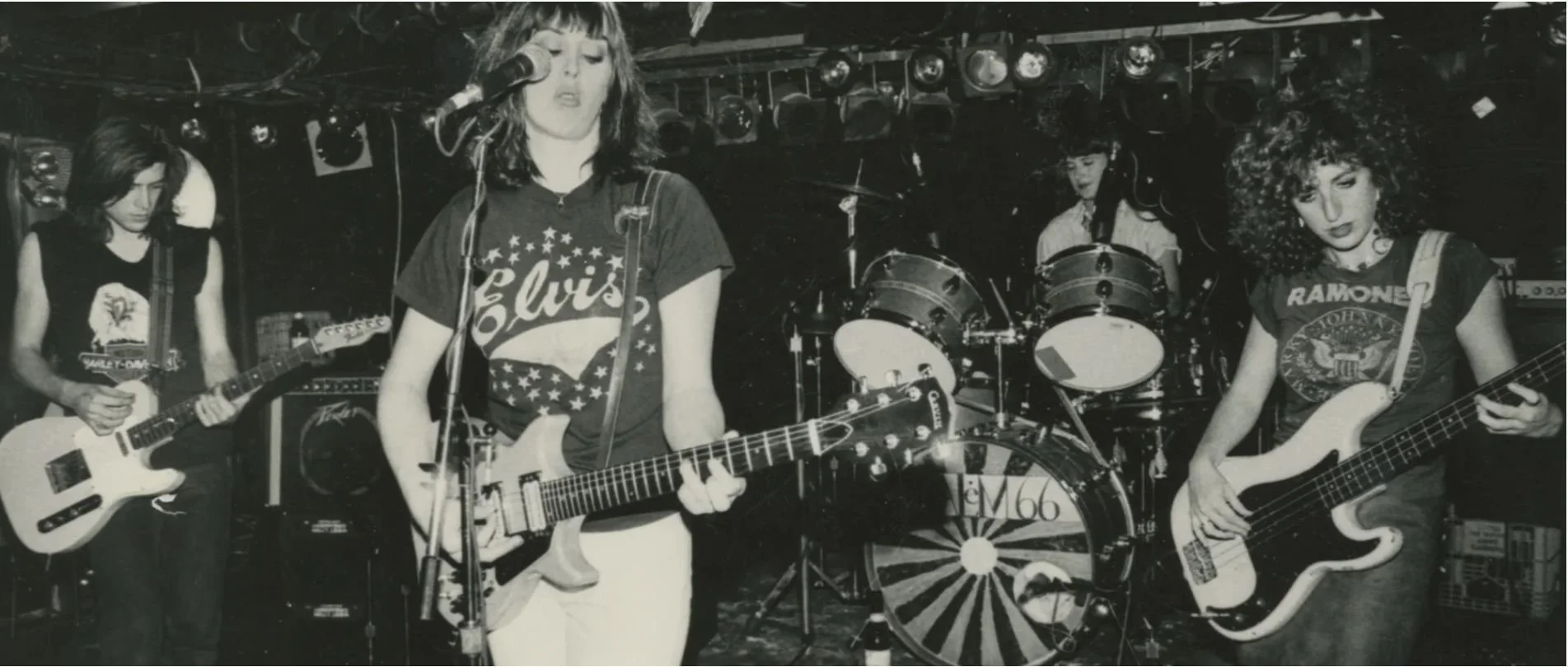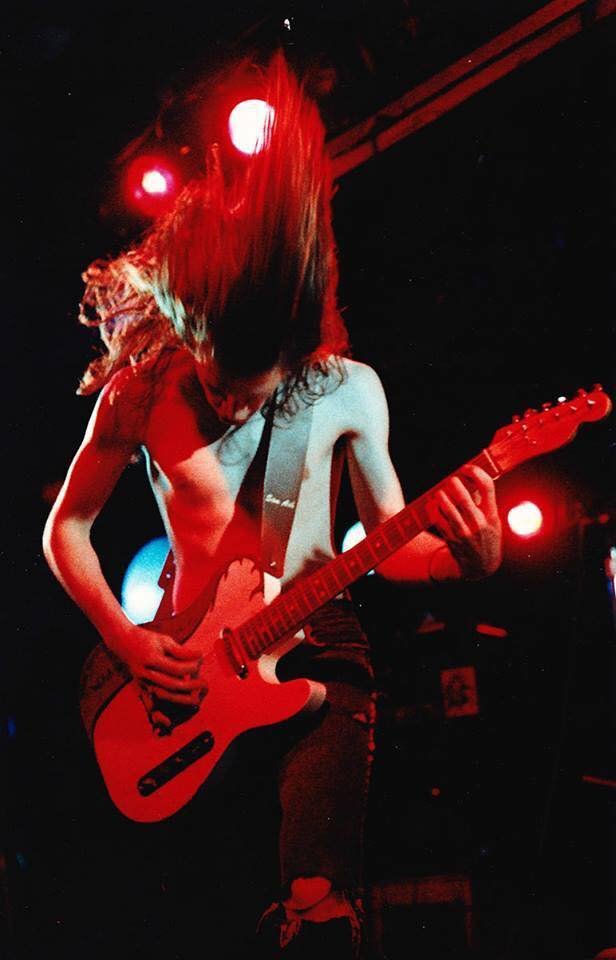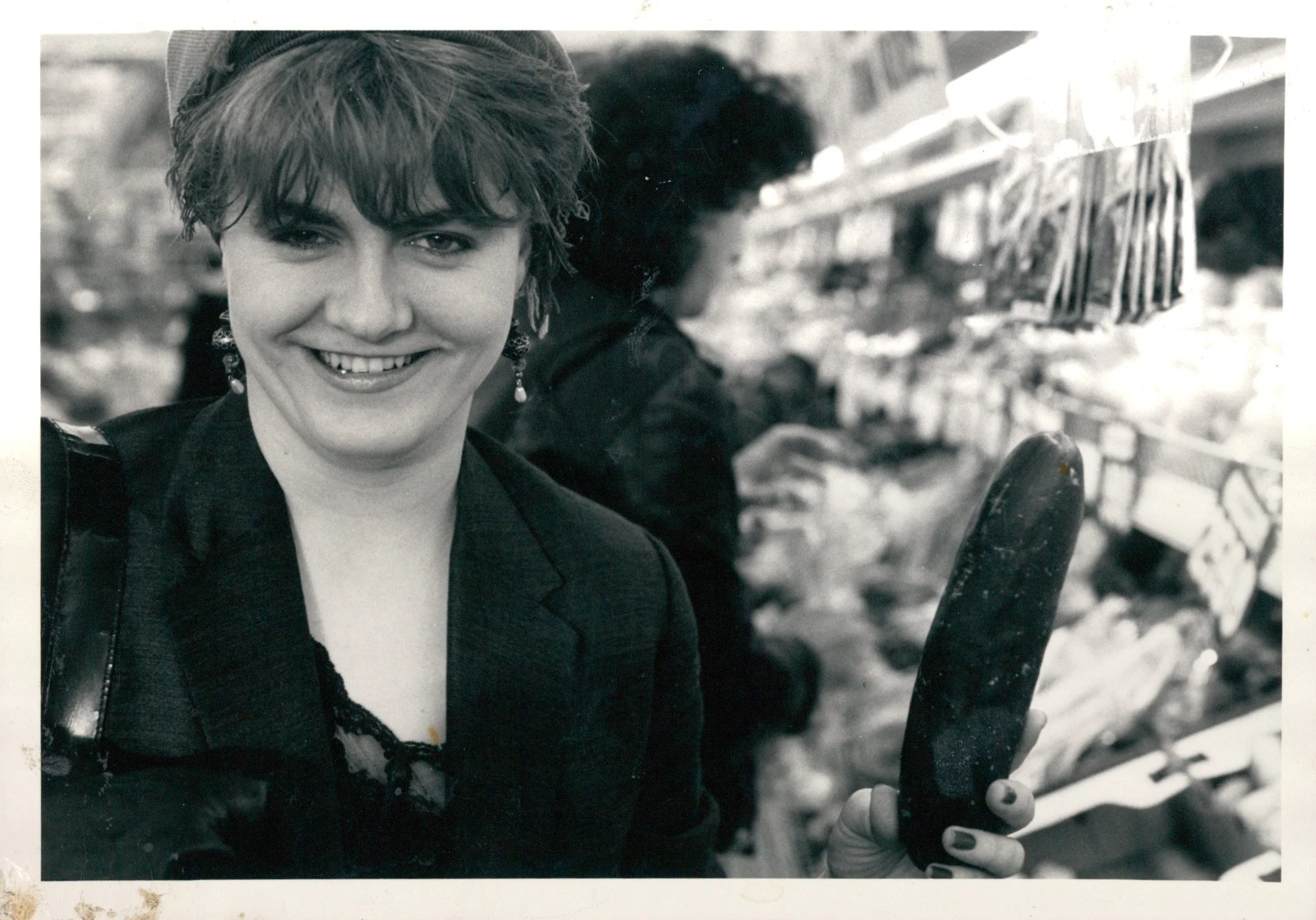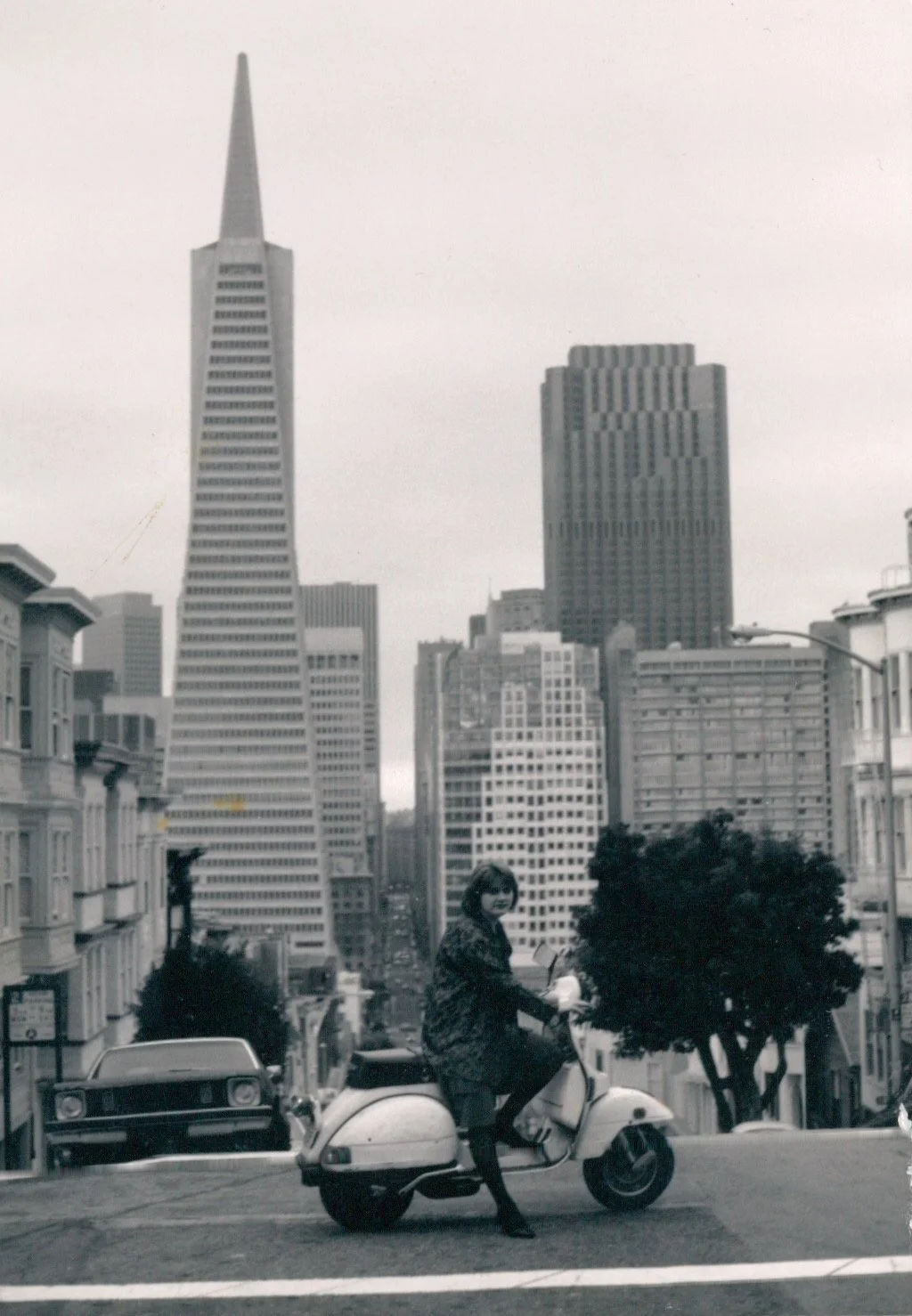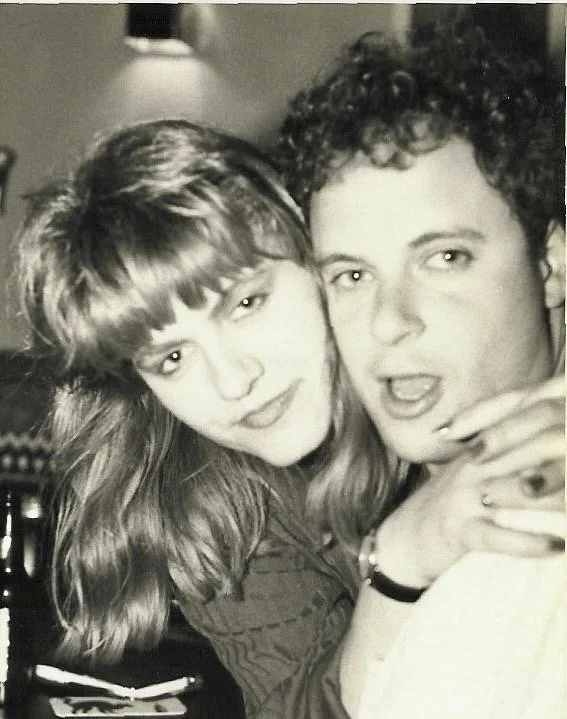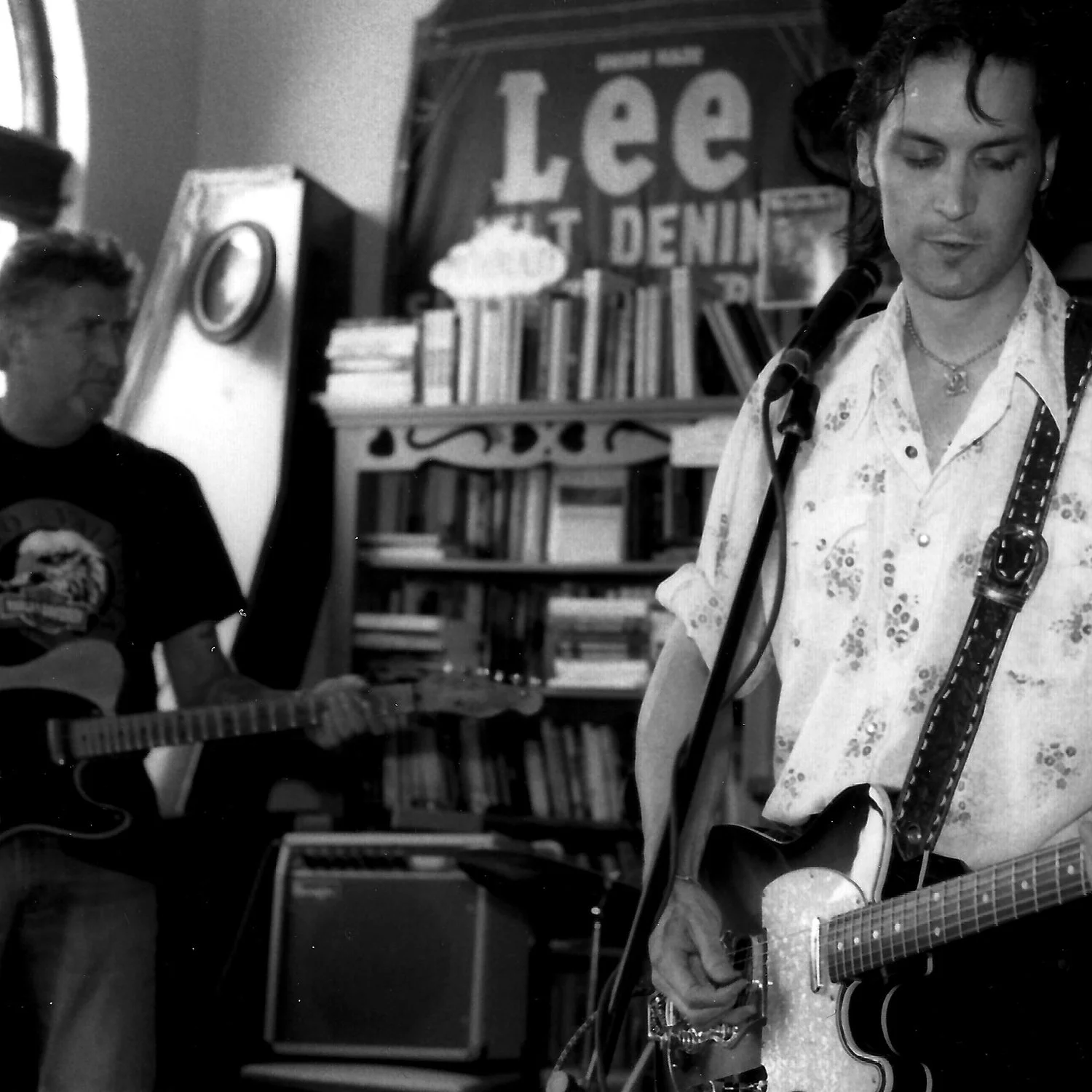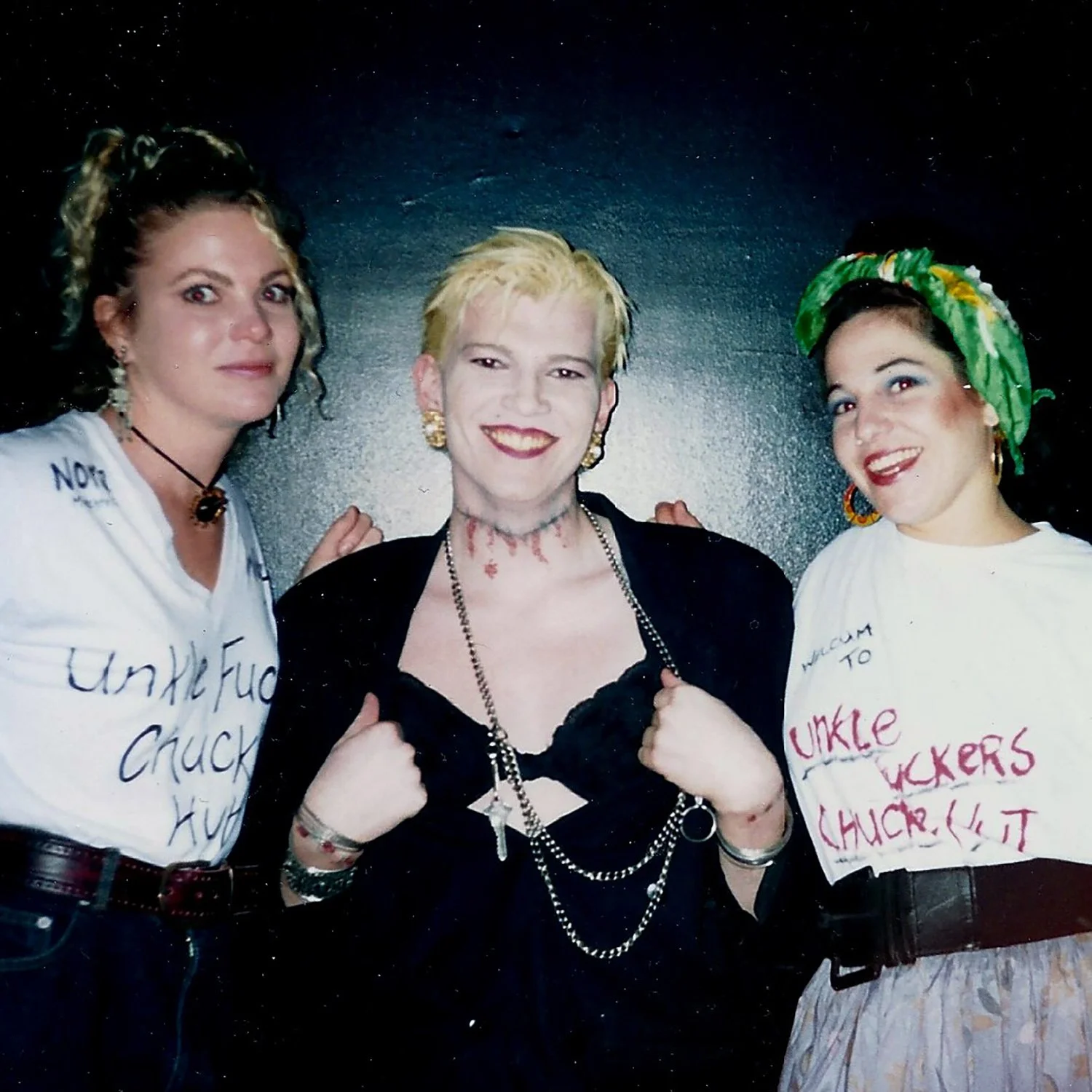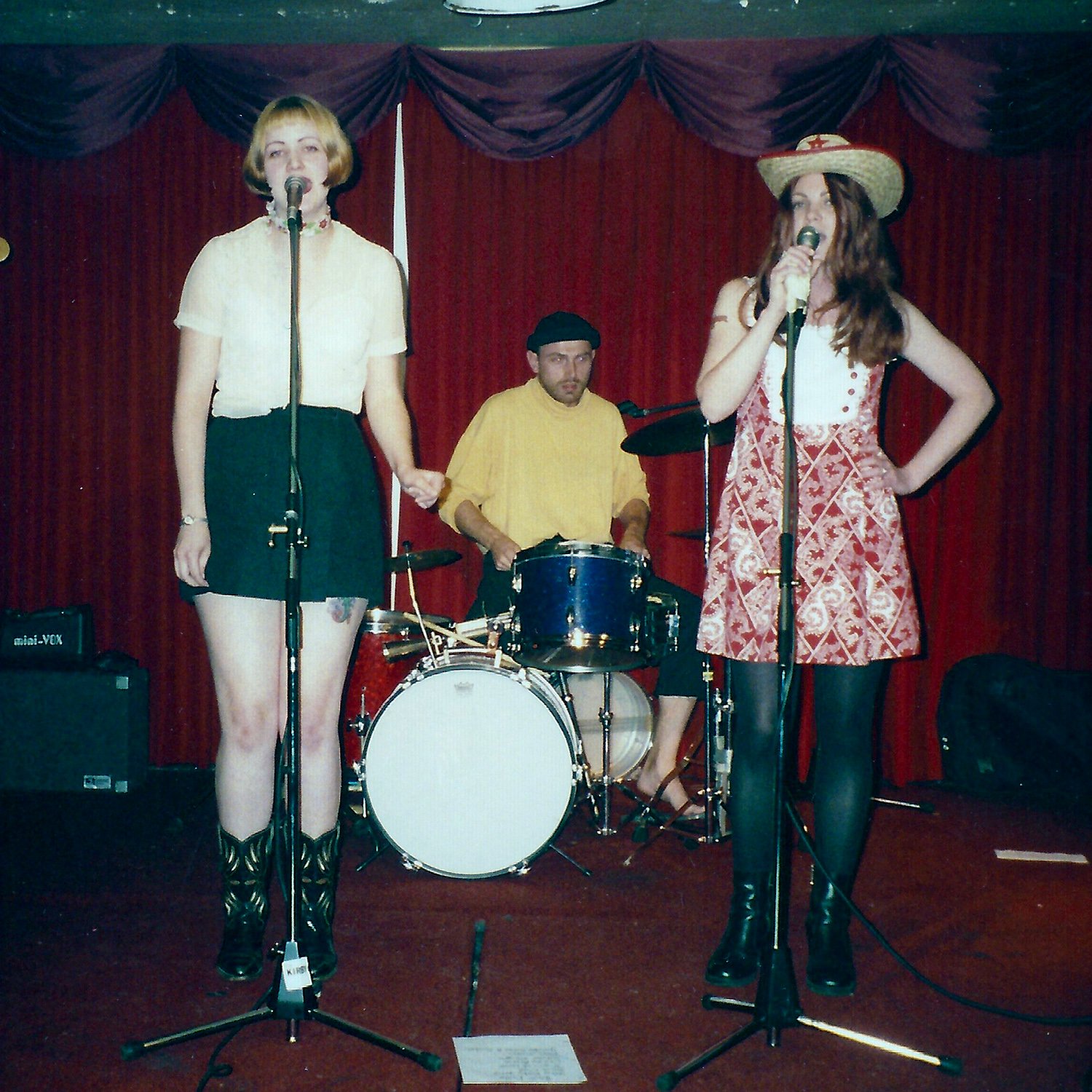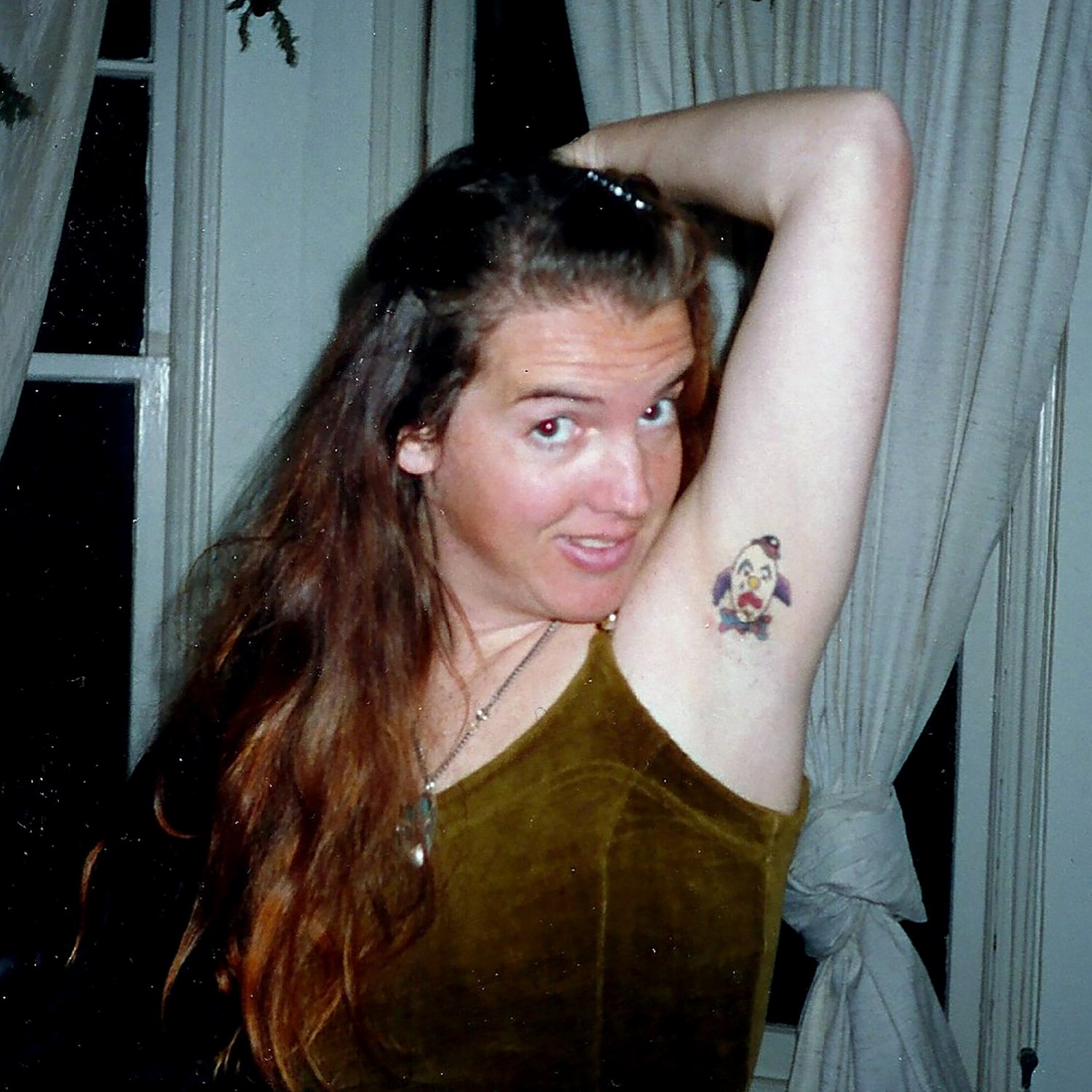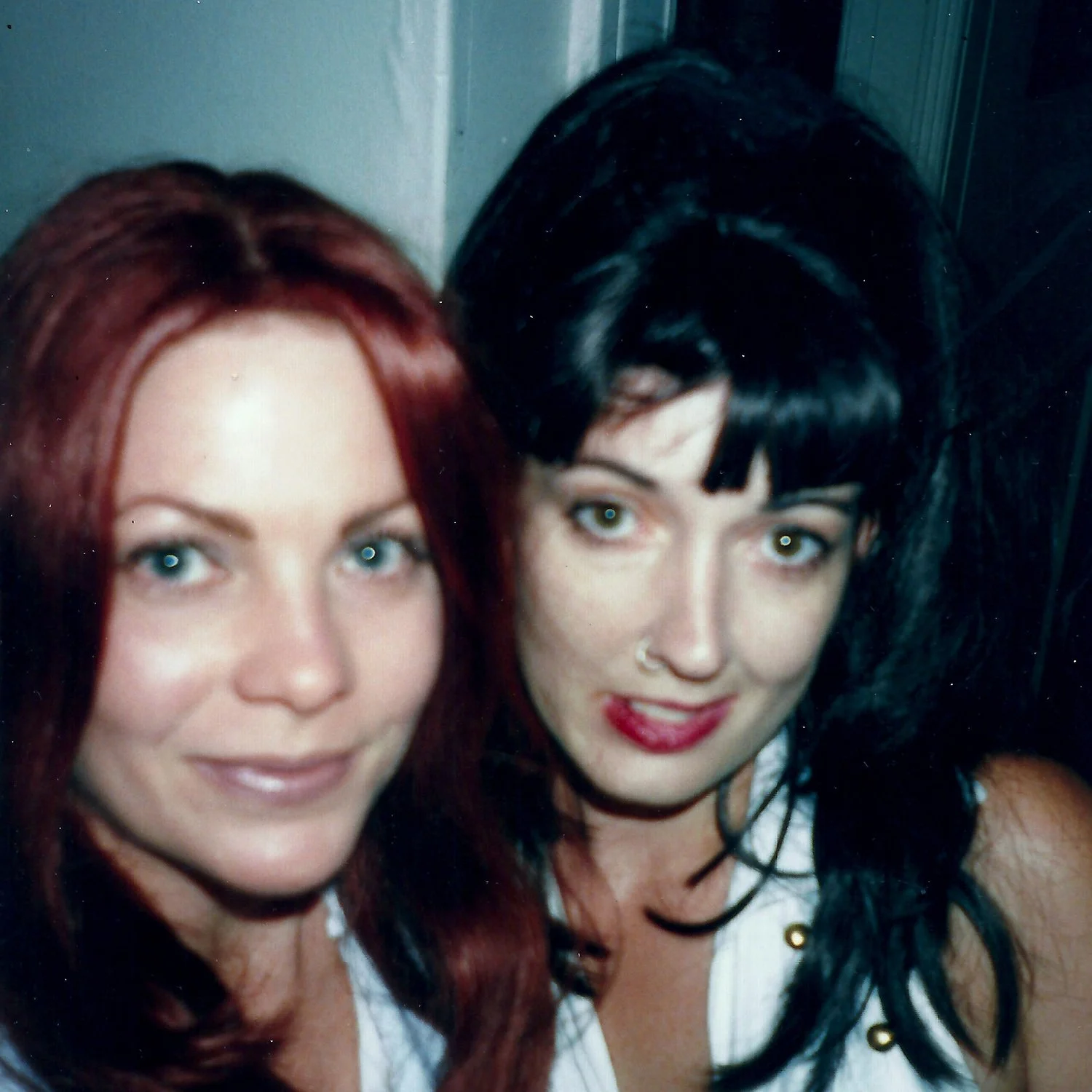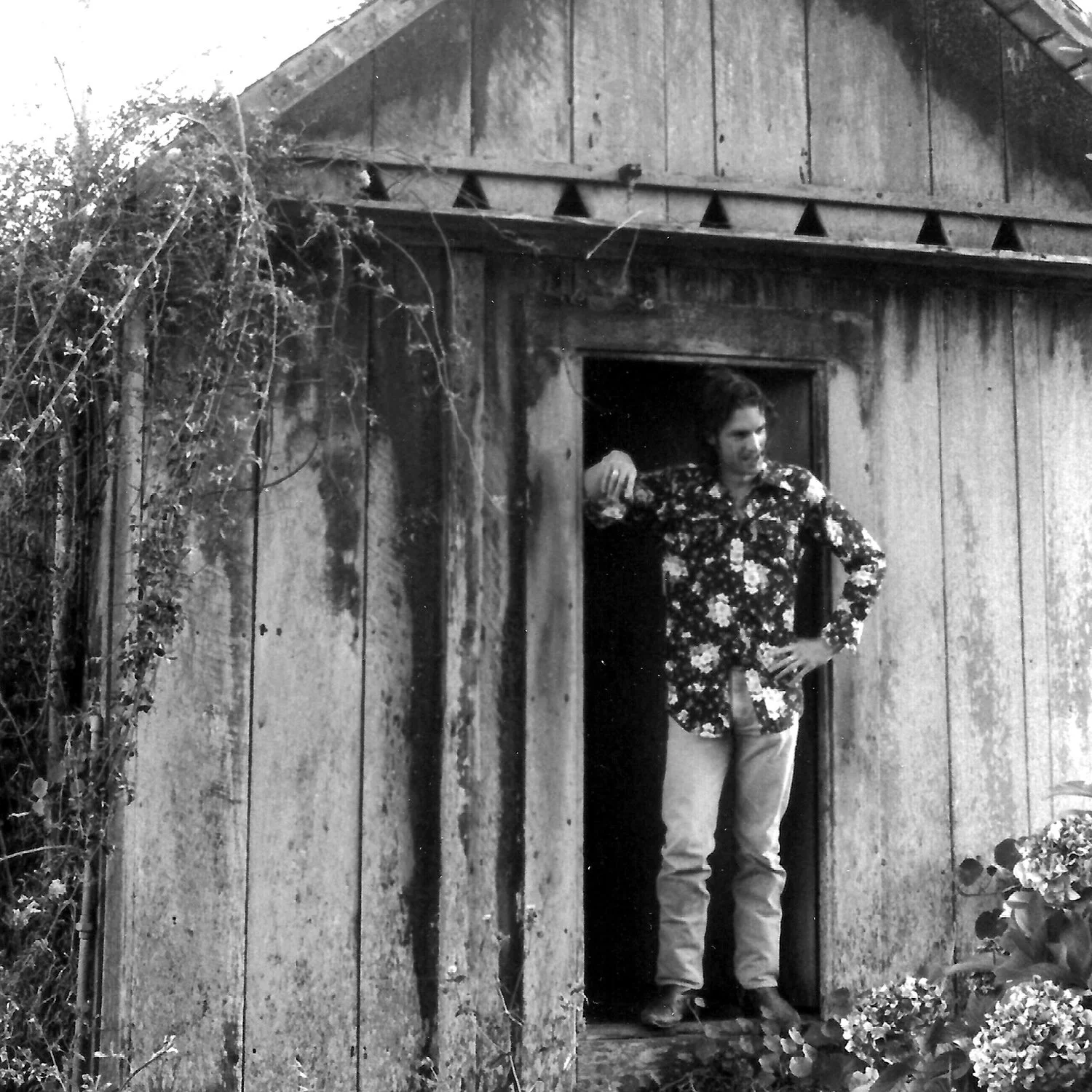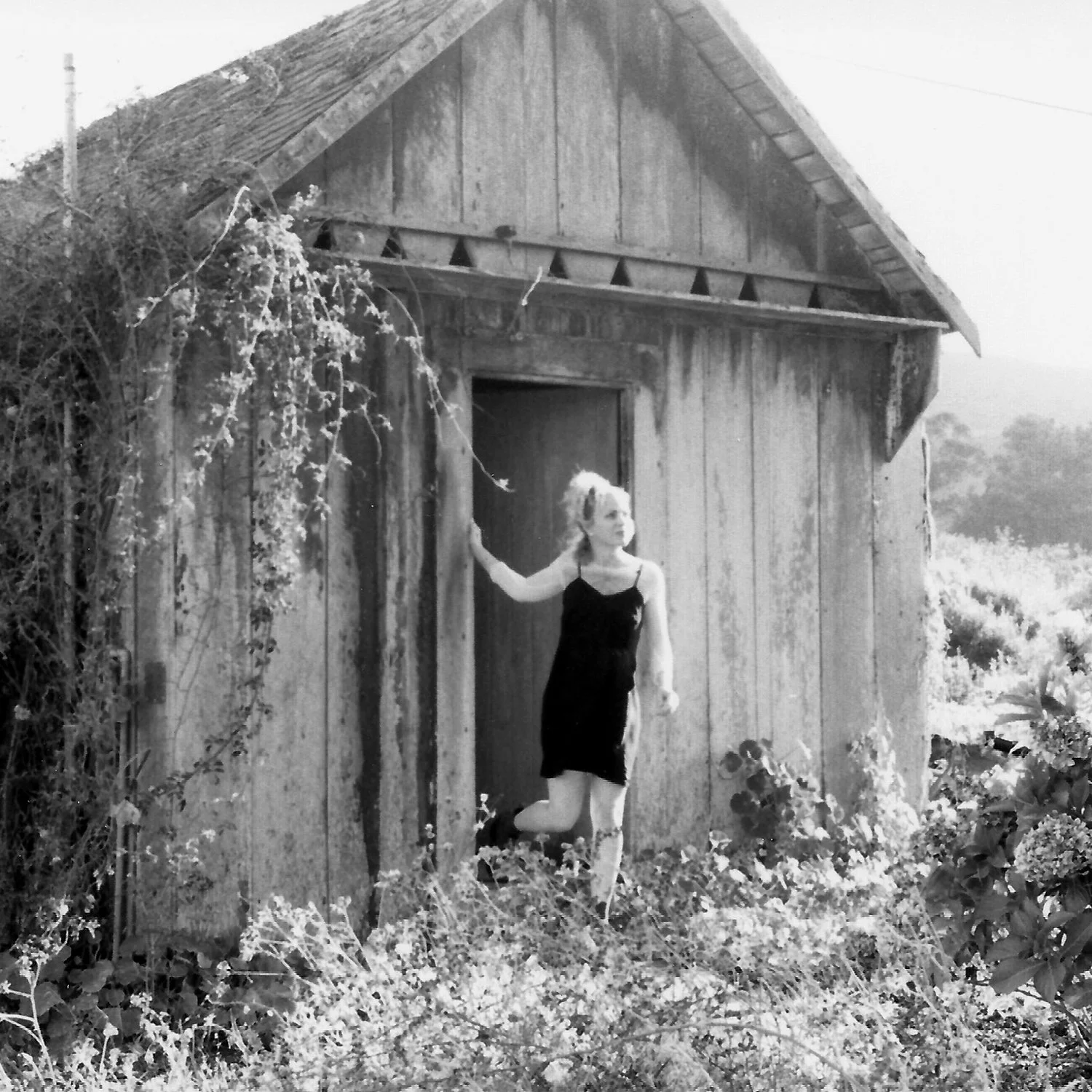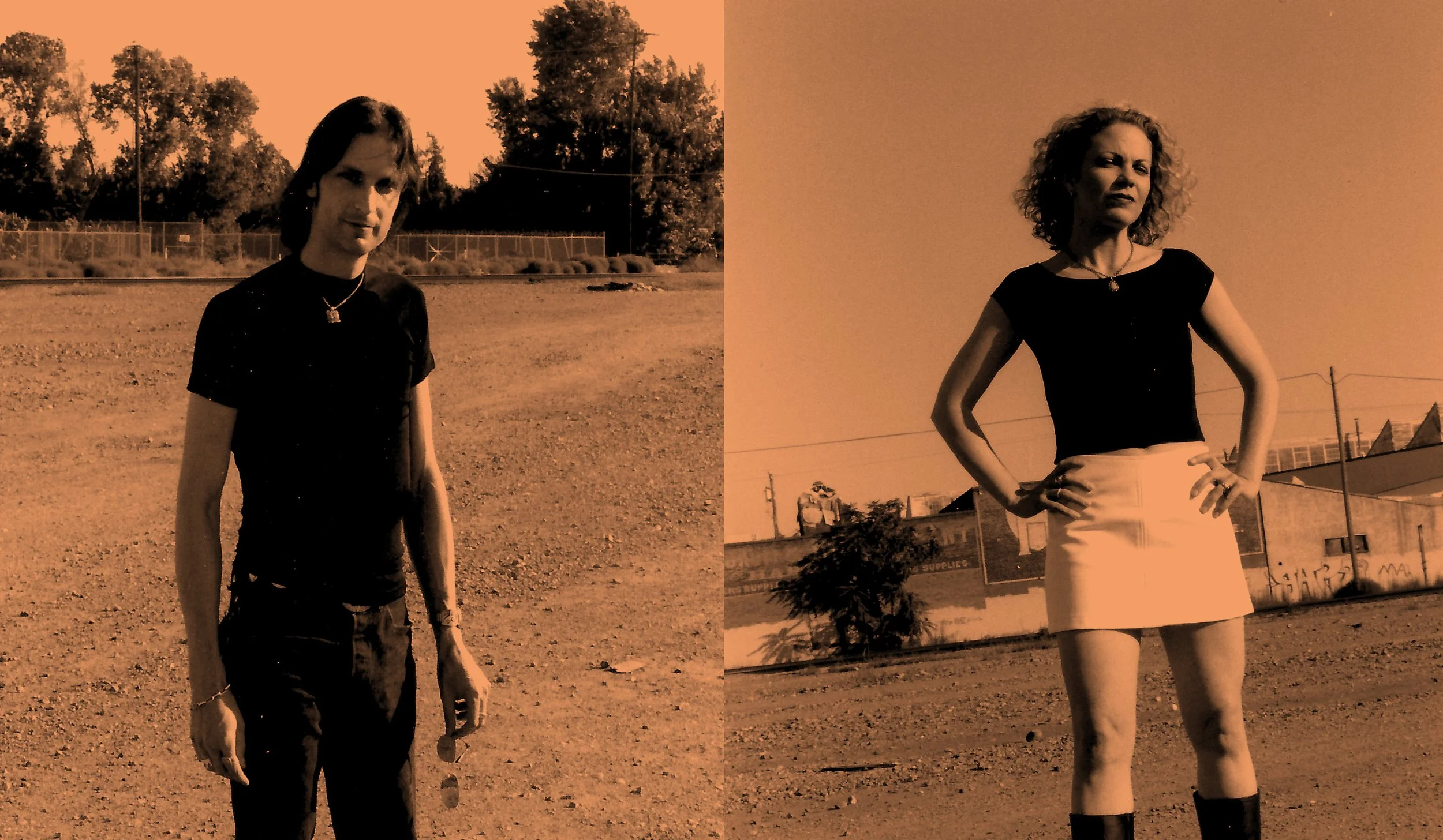
Who Did We Think We Were?
Individual contributions inspired by reading the memoir, Swollen Appetite.
Bottom of the Hill
Well damn. The Bottom of the Hill, a night club featuring local and indie touring acts in the Potrero Hill neighborhood of San Francisco announced its plan to close by the end of the year. BOH opened in 1991, the year before I moved to San Francisco to become an artist. I spent more time there drinking, socializing, watching or performing live music than any other club in the city where I didn’t work.
Western Electric 1993
Last June I published a memoir, Swollen Appetite set in 1990s San Francisco when I was full of longing and whiskey, and hell bent on becoming a musician. So many friends and readers told me the memoir took them back to their own experiences walking the street of SF, young and full of it. I started the blog, Who Did We Think We Were , to be a home to others’ stories exploring the incredible ache of youth. The longing that festered and expanded, sometimes led to a body of work, and sometimes led to an exit. In my case it was both. Most of the contributors to this blog colony have used the backdrop of 1990’s San Francisco, so maybe “Who Did We Think We Were” is a form of digital amber where we can memorialize in any way the contributor choses.
Sandy on stage BOH 1993
From Swollen Appetite, Here’s an antecdote to memorialize The Bottom of The Hill.
“I boarded the 22 Fillmore to the Bottom of the Hill to see Howe Gelb perform solo. His band Giant Sand had been one of my favorite indie-rock groups. The brakes hissed as the driver slowed and the trolley pole click-clicked as it connected and juiced along the overhead electric lines. The bus whined up the hills, then ground to a halt at the end of every block in the lower Haight and through the Mission to Potrero Hill. I bobbed and jerked in my seat, then got off a few blocks away from the nightclub to get a smoke in before the show. I weaved around strewn car-window glass—a thief’s mosaic glittering under the streetlights that lit up the fronts of warehouses, some abandoned, some still in use. I showed my ID at the door and paid admission, then grabbed a Bass ale at the curved bar and headed out back to the patio to smoke. Christmas lights were strung across the patio and Howe Gelb stood tall as a tree under them, talking to whoever stepped up. Girls swarmed him, and I inched closer and tried to act nonchalant. He laughed and admitted that his daughter was crazy about Barney, the purple dinosaur from the popular TV show. Someone scoffed, “Ewwww, Barney!” Trying to score points, I jumped to defend Howe’s little girl’s taste in celebrity dinosaurs. During the show, I got blasted, drunker than shit, and wrote a messy poem in the blank margins of the venue’s monthly show calendar. I presented it to Mr. Gelb after the show. He signed it and handed it back to me: “Keep on waxing. Love, Howe.”
I wanted more.
As the crowd thinned out and I wobbled at the bar, Ramona, the bar owner and bartender that night, told me to go sit my wasted ass on the curb outside and wait for the cab she’d called me. “Go home,” she admonished.
It wasn’t the first time that tough, beautiful broad took care of me—or, I reckon, a thousand other drunks.”
Consumption
Here comes the cab
The headlights expose warehouse desire
I stumble at the curb
A blanket of booze that warmed me from the inside out
Is tangled around my feet
Grace is not my best feature—I have too many teeth
Wanting to tear into a jugular that spews beauty
Beauty is terror (damn straight)
I want him in my bed
I seek what he does
I am a two-headed barracuda constantly consuming
(pages 161-162) This poem turned into the song below a few years later. The Washington Post had nice things to say about The Bellyachers in 1998.
Who Did We Think We Were is accepting submissions. Please email sandraaustinmello@gmail.com with a minimum of 800 words and 3 pictures.
Not Given by China Tamblyn
Not Given by China Tamblyn…excerpts from a memoir in the making.
Excerpts from a memoir in the making
My Mama pregnant with me in Topanga, Ca. 1969. Photo, Kenny Merril (from the archives of Rory White)
I am California born and raised, a 60’s love child, blessed to a band of hippies who left Hollywood to make love and art. A Topanga Canyon bastard, my birth certificate reads “Not Given” where a father’s name should be.
When I was a suckling, my mama found Jesus on an acid trip on the Sunset Strip. The neon signs were swirling and heaving, “I’ll satisfy you, I’ll satisfy you.” She saw the light, I screamed all night, but still she refused to feed me psychedelic milk.
Soon after the revelation of Christ, we left the stone cottage on Red Rock Road in Topanga and walked through our magical green door into a land of lawns. We were born again in Anaheim. A guitar-playing, harmony-singing church that loved folk songs re-written to Jesus. Beautiful Betsy snagged a church man. A real winner. David was bipolar, a cheater, and an abuser. The church said she was lucky, seeing as she already had two kids. My brother Dondi had been hit by a truck a few years earlier, was in a wheelchair and severely brain damaged, and me, well I was born out of wedlock and all.
In 1972, the Church told Mama and David they should preach the gospel to the protesters at People’s Park, so we packed our lives into the maroon Volvo and left Anaheim behind. We drove all night into the foggy dawn of Berkeley with Dondi’s wheelchair strapped to the top. I ate yogurt in the dark.
The Church’s hospitality house in North Berkeley was designed by Julia Morgan. Russell Street, my father’s name. The name not given. Mama was making eggs one morning and decided to take a walk around the block. She got distracted talking to someone about Jesus. There was a fire in the kitchen. I stood outside in my underwear, Dondi stuck inside. The firemen came and fantasies morphed into memories I can no longer distinguish. It turned into a song 20 years later.
The Berkeley Seminary 1973
We moved into a huge apartment complex on Hillegas, a block from People’s Park where dozens of church families lived. I creamed butter and brown sugar and ate it by the spoonful. Holly, my childhood church bestie and I rode the elevator up and down from the roof to the basement. When he couldn’t keep the fish alive, David threw the tank out the window from the 4th floor. It fell, smashing into the alley between the apartments where we buried our hamsters. I was 4 and I ran feral and free, jumping over hedges, and eating crab apples at the Seminary.
I grew up in the East Bay and only ventured to San Francisco for Church functions. We bounced around a bunch. By the time I was 10, I had moved at least 15 times and attended 5 different elementary schools from Richmond to Albany. One afternoon David lunged across the living room and attacked one of my Mom’s friends. The church decided that was too far. Later that day she took me to Sizzler on San Pablo in Albany. I ate Malibu chicken and cheese toast and she told me she was leaving him. In 1981, after several months living in the Villa Motel, we found a house that took Section 8 and landed in Hayward on Sunset Blvd. There was a local church there. Situated along the BART line, I rode back and forth to El Cerrito to see Nana and my orthodontist. Hayward had Low-riders. I bought China Flats at Woolworths, wore pantyhose, and wished I was Mexican.
I met my best friend Cori on the tetherball court at Cherryland Elementary in the 5th grade. She changed my life. She was smart and imaginative and LOVED music. I was sheltered and naive. My record collection consisted of Doris Day, Leslie Gore, The Archies, the Grease Soundtrack, and John Philip Sousa.
I learned to play guitar and wrote my first song for Jesus. The church was my life. It gave me a sense of community and belonging. One summer evening a couple of brothers came over to the house to gift me my own guitar and a church song book. That gift came with a warning that Queen and Led Zeppelin were worshiping the Devil and I could get infected. I had recently purchased a 45” of Another one Bites The Dust and like every guitar player at the time I was trying to learn Stairway to Heaven. Apparently if you played Another one Bites the Dust backwards it said “It’s fun to smoke marijuana”. Which is why to this day I’m such a stoner (and devil worshiper). Damn subliminal messaging.
I started to have my doubts about this born again thing but I stuck it out a little longer. There were lots of cute boys in the church, especially when the whole Bay Area would get together for a conference. The San Jose boys were especially hot. All pent up with forbidden lust and here I was busting at the seams. I would sit and stare longingly across the room while some elder blathered on about a bunch of biblical myth and fantasy. We wrote letters, developed our own code language. “Sister, I really have a burden for you”. On youth camping trips we snuck out of our cabins, smoked cigarettes, and skipped rocks. I came to the young people’s meeting one Saturday night with pink lace gloves, a bow in my hair and a fake mole above my lip. “Missy, that’s not you” they said. That was the last time I ever attended church. Little did they know, That was me. That is still me. “Bitch, I’m Madonna!”
Ready for the club 1988
In the late 80’s Cori and I started venturing to San Francisco to go dancing. We would spend Wednesday-Sunday in North Beach or South of Market at the Palladium, Club X, DV8, DNA, or wherever there was a pop up dance party. Sliding into fishnets and miniskirts in the back of her Dodge Dart, we would paint our faces and head to the club. Sweating and shaking our asses, we smoked menthol cigarettes and danced all night.
Cori was the musician. We wrote a few songs together but she was the one going on band auditions and pursuing the rock n roll dream. By the early 90’s she was playing in small clubs with her band The Water Signs. I was exploring architecture, photography, poetry, and boys. I got myself a musician boyfriend and started tagging along to all his shows. Curtis introduced me to a lot of the culture I had been sheltered from growing up. It was a crash course in art, music, literature, and film. It’s all we did, all we consumed. Berkeley bookstores, art openings, films at the UC, and CCAC parties. We would have late night jams writing songs and playing and singing together. “Starburst Jamboree” we called it. I wrote a couple of cheesy love songs. It was the ending of the innocent years, we all learned to bend and break. Through him I met Liz who I would eventually form The Kirby Grips with.
Kirby Grips at The Stork Club 1996. Photo Sam Bortnik
I was a late bloomer. When it came to rock n roll, I was the groupie and the roadie. I was the singer’s best friend, the drummer’s girlfriend. Liz too. One day we were at an art opening in North Oakland and she started bugging me. “China, you play guitar, you sing, let’s do something, I know a drummer, Michele. Let’s start a band”. Ok, I thought, why not. And so a few weeks or months later we booked a rehearsal room at Secret Studios in SF, and started making music. It was rough. None of us knew what the hell we were doing. Out of key and out of time, we didn’t care. We needed to play. We had to play. I learned, Going to The Chapel and I Wanna Be Your Dog. I wrote, Midol and Metric Man. We had four songs! Some friends of Michele asked us to play a party so we had a show at our rehearsal space. I met Sandra, host of this here blog, and author of Swollen Appetite, at our very first show. A beautiful curly headed blonde approached me as soon as our set ended. I can’t remember exactly what she said but I remember sitting on the steps outside of Secret, smoking Export A’s and having a great conversation. She told me she loved our music and the way I sang, she encouraged me to keep writing and playing. And I did. For the next 7 years, The Kirby Grips played the small clubs in SF and Berkeley and toured up and down the California coast. We put out a few records on Sympathy for The Record Industry. In the beginning I thought I would be the next Courtney Love, minus the stripping and the drugs, but I soon realized that the purpose was the process and fame was a long shot.
I met Elton at the Boomerang on Haight street. in 1997. His bandmates brought him to a Kirby Grips show. A few months later after playing some shows together he sent me a poem in the mail. At the bottom he wrote, “you should come to my studio and record a 45”. I did. We fell in love laying down tracks. We just celebrated our 25th anniversary.
Zipolite Mexico October 7th 2000
In the early 2000’s I put down my Gretch and decided to return to my first love, making art. I completed my sculpture degree at SF State and dedicated my time to raising my kids. I wasn’t writing as much and band practice had become a drag. With the new family life I needed time completely alone. When you’re fabricating metal people can’t really talk to you. Welding was like meditation. My Dad always said, “In the performing arts you are trying to make the audience’s head spin, with fine art you are trying to make your own head spin”.
Amen
Treedrop
You can see more of China’s sculptures and other artwork and music here. A story about China and her father, actor Russ Tamblyn, was published in People Magazine in 2024. Here’s a video of the song "Liar" performed by the Kirby Grips at a 2008 reunion show at the Rodent Records studio in San Francisco, CA.
Just a Fan by Janet Flemer
The 1989 earthquake woke me from an afternoon nap, having called in sick from my job at a skateboard magazine. I was living on solid rock on the 17th St. hill above the Castro so there wasn’t any damage but it shook so much and I did hear a low grinding roar. My little in law bootleg apartment was under a wooden 2 story house up a staircase from Saturn Street. Picturesque as fuck, but there were raccoons under the house and when the wind up there blew, which was all the time, the pilot light on the water heater went out. I’d never even thought about it all collapsing on top of me.
My coworker came by with NyQuil for me and had felt the jolt in her car. She was in a rush to get home to the Haight and watch the World Series. We had no idea.
Not until I went to the corner store at dusk to get batteries and candles (sold out for hours) did I know anything about the strength of the beast. Rumors flew freely. The Bay Bridge had collapsed! The World Series was cancelled! All the BART and underground trains had shut down so everyone had to walk home! (That one was real, although the buses still ran). All the phone lines were down! (Also kind of true). Land lines only. No Internet. No posting cell phone pics of your freaked out face or the blacked out city to the Gram. I finally turned on the boom box radio and called my mother.
I’d been in San Francisco about 4 years at this point, having moved here alone, in touch with one real friend from college years in Eugene. The roommate in my first apartment here (thanks, Roommate Referral!) turned out to be a compulsive liar. We got evicted because she wasn’t paying rent, but she told me the landlord needed our apartment for his pregnant sister or some shit.
San Francisco couldn’t break me! The Saturn place was an unusual piece of good luck, I can’t remember how I found it. I’d slowly made friends through live music, going out almost every night. I’m cripplingly shy and have a powerful bitchy resting face, so this needed years.
One night at the the Vis Club, which became the Kennel Club, Justice League, then the Independent, I met a group of people who’d all moved to SF together from Syracuse. The band playing that night was the Coolies, from Atlanta, who played their own version of Simon and Garfunkel tunes. I think this was 1986 and started a social streak that’s still going.
A few nights after Loma Prieta, some girls I’d met through the Syracuse lads insisted that we go see Fetchin Bones at the Kennel Club, “I need some Hope Nichols tonight.” Indeed, that singer was a revelation. It really did help.
Just last night, over 30 years later, seeing an ensemble called the Red Room Orchestra playing the soundtrack for McCabe and Mrs Miller, I also got an almost physical boost. The group includes veterans of many local bands who are all incredible. Before the music started I got a sick headache and was thinking about going home, but the musicians made all that go away immediately.
I cared about these nights out, soaking up music, more than any job I’d ever had. The catharsis, energy and connectivity, even though I was just an observer, did make me feel part of something. Even if there was no live music, there were new friends to be made. There were bookstores (hello Adobe and Green Apple, still here), poetry nights(!) and theater, art openings and sometimes people made food and we ate with plates on our laps.
There were movies at gorgeous old Art Deco theaters long since turned into gyms or torn down. Near Dark at the Alhambra, Pulp Fiction at the Metro, Christmas Day Coen brothers movies at the Bridge or Lumiere, Goodfellas at the Coronet (where i sprained my foot and stayed anyway like a dumbass), the Alexandria, the Clay and the mighty Castro. Of course the Red Vic and ATA and Art Institute, too. The Roxie and a few tiny neighborhood places are somehow still surviving.
You could usually at least overhear a good conversation in record stores like Aquarius, Recycled, Revolver, Rough Trade, Reckless, Streetlight, Rooky Ricardo’s. Bands would play sets in them for free. Some like Epicenter were more like community centers. I was intimidated by some of the employees.
I felt more comfortable in video rental places, perhaps because I’d worked in one in Philadelphia. Naked Eye in the Haight, Captain Video and Tower on Market Street, Leather Tongue on Valencia, and one on Potrero Hill whose name I just can’t remember. I hadn’t had a TV for a few years, which some people couldn’t understand, and when I did it was mostly used to watch movies. Those pre-Buffy years held no interest to me.
There were two independent weekly papers, where lots of people started their writing careers. I was surprised to read that SF Weekly was still around as recently as 2020. The Bay Guardian was shut down at least a decade ago, after both of them were taken over by media conglomerates that ran them into the ground.
In 1990, even though I’d sworn I’d never have roommates again, I’d moved to an actual house a block from Dolores Park with two other women, which quickly became two women and one annoying boyfriend. I’d started classes at California College of Arts and Crafts for graphic design. The house was pretty luxe, with two bathrooms, two working fireplaces, a garage, a huge kitchen, and a view over to the East Bay Hills. A year later we were able to watch them burning on an eerily warm fall day and into the evening. In early 1992 I moved into my own place and I’m still there.
Upon graduating I became a huge influence on the design world and got all the Print awards and speaking gigs and accolades and all the cool designers drop my name. Just kidding, But I did get health insurance which has come in handy.
Some people got married. I haven’t but have been with a lovely man for 20 years who I met when a good friend went on a Nerve date with him. We reconnected at a Fiery Furnaces show at the Bottom of the Hill.
I guess I’m supposed to drop a bunch of club names now. I Beam, Chatterbox, later the Chameleon, Paradise Lounge, Kennel Club, Oasis, Kilowatt, El Rio, DV8, DNA, Slim’s, Hotel Utah, Covered Wagon, Albion, Elbo Room, Nightbreak/Thirsty Swede, The Purple Onion, Music Works, 21 Bernice, Studio 4, The Farm, Kimo’s, the Knockout.
Thee Parkside, Bottom of the Hill, The Rite Spot, Make Out Room, Latin American Club and Great American Music Hall are all still here.
This would be very long if you want band names.
Oh, OK:
American Music Club, Granfaloon Bus, Dieselhed, Rick Buckner, Brian Jonestown Massacre, Flying Color, Catheads, Mommyheads, Thin White Rope, Game Theory, the Buckets, Tarnation, Flipper, Tragic Mulatto, the Snowmen, Thinking Fellers, Harm Farm, Wannabe Texans, Virginia Dare, SF Seals/Barbara Manning, Fuck, Frightwig, Wade, Camper Van Beethoven, Grandaddy, the Enablers, MK Ultra, the Mummies, and that’s just the local ones I can think of that I liked. There were some (cough cough 4NonBlondes cough cough) that I did not.
Janet’s photography can be followed here.
The 1990s, Adventures in Becoming Myself by Cheryl Downes McCoy
When the 90s began, I was wrapping up a year of cocktail waitressing and dancing on the tables at a beach-themed nightclub in a suburban strip mall in Wisconsin.
Dancing for Plane Fare
When the 90s began, I was wrapping up a year of cocktail waitressing and dancing on the tables at a beach-themed nightclub in a suburban strip mall in Wisconsin. We wore open Hawaiian shirts over bikini tops with shorts, and (on weekends) sold premixed cocktails, called Blowjobs and Tequilla Poppers, from the bottle holsters on our hips and shot glasses loaded into a bandolier across our chests. When the DJ, high up in the booth over the dancefloor, hit the siren, we’d put down our trays, hop up on a bar or table and dance a choreographed routine to one of the chosen songs. I still do it in my head, when I hear Salt N’ Pepa’s “Push it Real Good.”
I’d gotten this gig after graduating from U.C. Berkeley with a dilettante’s degree in Religions Studies. I had zero job prospects and a burning desire to see the world. To earn the money to make that happen, I accepted my parents’ generous offer to live rent-free with them for a year in their new home Wisconsin. This was a place where I knew no one, so I wouldn’t have a social life, and would be able save every quarter towards my goal.
Come March of 1990, having saved enough to purchase a ‘round-the-world ticket, and made notes in an excessive number of Lonely Planet Guides, I set out on a 10-month, solo adventure. I hit a few highlights in Western Europe, spent some time clearing bottles from a bar on Corfu Greece in exchange for room and board, then travelled through the recently opened (and ill-equipped for travelers,) countries of Yugoslavia, Czechoslovakia, and Hungary. On to Southeast Asia, where I stumbled awed and wide-eyed throughout my time in Northern India, Nepal, Thailand, and Indonesia.
On the wall above Dubrovnik in what was still Yugoslavia
Riding a tiny, rented motorcycle above the rice fields in the foothills of the Himalayas
It was an epic, once in lifetime experience, that opened my mind and heart, and taught me about the beautiful, painful, complex oneness of humankind. I carried a backpack, a plane ticket, a money pouch inside my clothes (containing my passport, US dollars, and some traveler’s checks,) my curiosity, and a sense of fearlessness that only the stupidity of youth and privilege can provide.
Boston Rock & Science Docs
When I returned to the states, I settled in Boston, landing first with an old college friend, then on to a large, dirt-cheep, art-filled, crash pad of a house in Allston, with no front door lock, a rotating cast of roommates, and a salvaged mail-truck with no seats parked out the front, that our roommate used for moving his sculptures and driving the free-rolling pile of us around to shows. I collected a wildly creative group of friends, mostly musicians, who I would come to feel like college buddies without the college.
In the beginning, I worked at a used bookstore during the day and cocktail waitressed at a club, a few nights a week. Whenever I wasn’t working, I saw/heard live music. This was Boston in the early 90s! I was one of few non-musicians, and I went to every show I could. Everyone I knew was in some nascent punk, grunge, power-pop, funk, metal, industrial, Indie band with an incestuously changing lineup.
Boston frolickers frolicking
At work, I met the folks who would help me get a foot in the door as an intern working on a PBS documentary series, which led to a position at a production company, run by the creators of NOVA. I worked on pop-science documentaries and episodes of Scientific American Frontiers for PBS. Suddenly it seemed I had a real job, which was something none of my friends had. I was in my twenties. I got a decent paycheck and had no responsibilities.
I called my job “legitimized curiosity” because I was allowed to experience things that only the possession of a professional-looking camera permits (like, standing in the operating room during open-heart surgery, flying a room-sized hydraulic flight simulator, and riding along with the NYPD on calls.)
Once I had the means, I moved out of the party house. I eventually got my own tiny studio on the top floor of a once fancy hotel near Symphony Hall, that had become a rundown apartment building. The bathroom (nearly the size of the rest of the apartment) had a huge clawfoot tub, whose toenails I painted red, and marble walls. The building had a convenience store on the first floor, a cast of residents that belonged in a Jarmusch film, and a Super who was sent to jail for life, for selling a shit-ton of heroin out of his apartment and continuing to cash the Social Security checks of an elderly resident long after she died.
For me, this was a time of unfettered freedom. I had the best job in the world and whenever I was home from our shoots, I rode my yellow bicycle to all the bars and shows. I wore short skirts, black leggings, and a leather jacket. I had a single key to my apartment on a string around my neck. I tucked cash and my ID into the top if my combat boots.
A Bizarre New Bay Area
After a couple brutal winters, I decided I was done with the snow, bought a friends 1977 Chevy Malibu for $200, attached a U-Haul and drove with a friend (who quickly became a lover) back to the West Coast. I was determined to live in San Francisco—not Berkeley—this time. While I had loved going to college in Berkeley, the carefree, Grateful Dead follower hippy vibe that had welcomed me in the 1980s had evolved into a junkie, scammer, dirtbag, scene from which I wanted to distance myself.
My 1977 Chevy Malibu got 9MPG. It’s open door took up a whole parking space.
I arrived in SF with the momentum and connections to land one last PBS series, on the history of person computers (called “Triumph of the Nerds”.) While working on the series we met and interviewed the inventers, garage tinkerers, founders, pioneers, and early employees of all the technology companies you’ve heard of. I have stories about Jobs and Woz, Gates, Allen, Ellison, and dozens more you’ve never heard of.
After the show aired, there were tumbleweeds on the job front for a while. I scraped by and eventually talked myself into a job at the nascent Wired Digital (then called Hotwired) despite having no relevant experience or even an aptitude for the WWW. Name-dropping the folks I’d met on Nerds, and the fact that no one else knew what they were doing, provided a foot in the door. They gave me a job where I wasn’t going to cause too much trouble and a title I didn’t deserve (Associate Managing Editor of Wired News,) and I officially joined the crazy pre-dot com Web world.
Inside our offices at Hotwired, images from Janelle Brown
I left Wired before my stock vested (because I didn’t understand what it was) for a job as a Producer (I knew how to manage people and projects!) at an early Web shop called Vivid Studios (not the porn site.) They started me at an insane $75K, which would rise to $125K before a year was out, because every time we hired a new producer the rest of us were brought up to parity.
Vivid was next door to Wired, downstairs from Organic, and across the street from South Park and Caffe Centro where I got my near-daily, Salade Niçoise and all the interweb hipsters lounged on the lawn. My co-workers became my best friends and my entire social life (in no small part due to the sheer number of hours we spent together.) Work and parties and sex and drugs and our belief in the vast unifying potential of the work we were doing connected us in such significant ways that I am still close and in regularly in touch with the folks I met back then.
My “professional headshot” for Vivid Studios
Halloween in the mid-90s
Headlong into Living
I lived first in Noe Valley, and then on Duboce Triangle Park, and when my boyfriend and I broke up, I got myself a tiny studio on the corner of Gough and Hayes. The undeveloped Hayes Valley had one brand-new restaurant, called Absinthe, and a single, too expensive shoe store.
By 1997, I’d signed on with an honest to goodness start-up, called BigStep.com, for even more money and more responsibility. I was 31 and on my first day of work, the head of engineering said, “It’s so nice to have an adult on staff, now.” There were fewer than twenty of us at the start, and I would ride this first of its kind, Build-Your-Own Business Website company through to the end of the decade, at which point I was the Executive Producer of an impressive Internet business with over three-hundred employees.
It was such a cool idea! We thought we were the good guys helping all the independent small businesses create their own online stores. And we meant to be. But then we grew and expanded from our cramped space in a janky Mission/Potrero condo into a big building on Mission Street, where we were quickly “occupied” by a bunch of black-clad, bandana-masked white punks our age, who marched into our room full of bicycles, and dogs, and computers propped on shared hollow core doors, chanting in their college Spanish about how we were gentrifiers ruining the neighborhood. Maybe we were.
Throughout this time, I rode a sparkle-red 70’s vintage Honda motorcycle. I wore soft leather pants and faux fur. I haunted the thrift shops and hip boutiques. I came and went on my own, meeting friends at Doc’s Clock or Zeitgeist, or any of the new bars popping up by the minute. I ate out every night. I spent insane amounts of money at Slow Club after a long day of work, and had a weekly date at Delfina, with my old college roommate, who knew the owner. I learned about wine and who makes the best panna cotta. I never considered that the money might run out.
Early days at BigStep.com, we were featured in a bunch of mags
My social circle continued to be made up of the folks I worked with nights and days and weekends because of versions, and Betas, and launches, and machines that texted people day and night. In the hours I wasn’t working or eating and drinking my way across the city, I took painting classes with a favorite teacher at the Art Institute in North Beach, and yoga classes with a Romanian ex-circus performer in the relatively undiscovered Potrero neighborhood. I paid for my first expensive-but-worth-it haircuts and dye jobs at a salon in the Castro (a friend told me my hair color looked like “aqueous wood.”) I bought myself anthropomorphic taxidermy scenes and flirted with the staff at Paxton Gate. I hit on the lesbians at The Lex. I stayed out late, slept with whoever I wanted, drank more than was good for me, and saw live music on the occasions when my Boston friends came to town. One birthday, I rented out the art gallery and bar, 111 Minna, ordered Middle Eastern food delivered, and invited every single person I knew to come celebrate.
Burning Man late 90s. Polaroids were my medium of choice.
Entering the Chrysalis Stage
By 1999, the writing was on the wall, our funders decided they couldn’t wait until we were booking revenue (per our five-year business plan) and pulled their millions. We folded as the decade ended, in small waves of excruciating layoffs, but with at least enough grace to grant some severance to each.
In the last months before Y2K brought the 90s to its ridiculous end, I met my ex-husband-to-be at a launch party for some long-forgotten website, built by an equally insignificant design studio. The marriage that I thought was the start of something exciting and new turned out (in retrospect) to be the beginning of a period of contraction and compromise, of bending to fit, and giving up on confidence, and spontaneity, and freedom. In the years that followed, while I’d find another cool new career, and have a child who would become the focus of all my love and energy—the person who was me largely disappeared.
This Very Hungry Caterpillar of the 1990’s entered a twenty-five-year chrysalis stage. I think I dissolved into a stew of potential (scientific term, “imaginal discs”) and took a good long while to re-form. It’s only now, in 2025, that I feel ready for an older, wiser (albeit achier) winged beauty to emerge. Perhaps, now barely sixty, the same stuff that comprised the cocktail waitress who saved every tip to circumnavigate the globe has reorganized itself into something wholly and gloriously new. Becoming oneself can take a while. But just this year, my divorce is final, my house of 21-years has been sold, my chaplaincy school is in the bag, and I’ve been ordained as a Spiritual Caregiver & Interfaith Chaplain. Maybe I am like a butterfly. Or maybe, I’m like an old car that was cool in the 90s, garaged for two decades, and is finally restored and back on the road.
Today, with a nod to the 1990s, I’m setting up my new apartment, I’m putting on the Pixies, and I’m looking for a date.
Cheryl Downes McCoy is a poet, chaplain, mother, and all-around badass friend. Two books of poetry, Strong Back, Soft Front, and The Thing About Feathers, can be found here and here. Choosing to Love, a KQED Perspectives piece, can be found here.
Infinite Decay into Nothingness by Ajax Green
I moved to SF in '93 to get my life together. I had been spinning my wheels in London England, working in all-night cafe and playing bass in a dream-pop band that I didn't love (we were not as good as the Sundays). I was going nowhere and decided go back to college in the USA.
My friend Cory lived in SF so I moved there - I had one friend! He found me a room in a giant 4-bedroom, 2-story apartment on McAllister & Baker in the Western Addition ($350). I lived with a graphic designer, a singing waiter, and a lonely girl who could often be heard weeping behind her closed door. We weren't friends, but every Thursday night the four of us would gather in the living room to watch the new, mind-blowing TV show "Seinfeld" and, ironically, "Friends".
Cory was friends with a band called Granfaloon Bus, who had already put out two great records but after their guitarist/clarinetist was fired (for accidentally kicking an audience member in the face while climbing on the bar at the Blue Lamp) they needed a new guy to make noises in between the verses. I strapped my guitar to my back and rode my bike to the rehearsal studio way out in the Excelsior district and somehow passed the audition - without a clarinet! I was very bad at guitar then, which was a plus - these guys didn't want to hear any notes that had been played before.
I signed up with a temp agency to make money. In the morning I would ride my bike from the Western Addition to SF State for classes. At lunchtime I would ride my bike over Twin Peaks and zoom down Market Street all the way to the Financial District to do dumb office work in the afternoon. What a thrill to be on the top of the city every day and barrel down the hill as fast as possible into the gleaming metal canyons of downtown! I really wanted to be a bike messenger. They were cool and I thought it must be the perfect career - the city was full of dirty cyclists back then and they were like independent punk cowboys - but I didn't pursue it and instead sat in cubicles and made photocopies of legal briefs and got really good at Minesweeper.
A year later my girlfriend joined me from London and we moved to a 1 bedroom on South Van Ness and 24th in a beautiful restored victorian ($700). Across the street was a dilapidated bar called "The Phone Booth" that I was scared of, until one night after school I found some courage and went for a drink. It was an old-man bar, but they were playing bizarre electronic music and I met a few nice gay drunks. They also had a ruddy old pianist who sometimes would play songs, but I never recognized a single tune. He took requests too but he had never heard of any of the songs I suggested - the venn diagram of our musical overlap was completely empty. "How is this even possible?" I wondered. "I know a lot of songs!"
At SF State a weird old man who looked like Ernest Hemingway always tried to talk to me after Spanish class. I ignored him for a semester, but then when he showed up in Spanish 2 I relented. Every week we'd have a coffee date at Muddy Water's on Valencia St, where he would regale me with stories from his ribald life. It was just like "Tuesday's With Morrie" except that all his stories and life-lessons were about blow jobs. He often insisted that I must have a wonderful penis, but I never showed it to him. Cruel!
Granfaloon Bus gigged at a few places - the Nightbreak, the Paradise Lounge, The Hotel Utah, some weird basement; but mostly we played the Make Out Room in the Mission because Marty (the owner) loved our music (and was also the singer's roomate). The G-Bus songwriting was exceptional and I felt so lucky to be in the same band with a lyrical genius - the Bob Dylan of Capp Street! The band was a reaction to loud, predicatable rock and roll, and we tried to do everything the opposite of what had come before. We liked to play songs that got quieter and quieter on an infinite decay into nothingness, and I loved to hear the chatter of the audience in the Make Out Room overwhelm our tiny music until it finally disappeared.
The Subtle Plague (another SF band) got us a record deal in Germany, and we toured northern Europe a few times. Those first tours were the best days of my life - young, wild, and free, with nothing to do but get weird with my friends on stage every night.
Four years later I had a kid and my wife wanted to leave the city. "Why?" I argued. "The 3 of us can live in this 1 bedroom apartment FOREVER!"
I did not win that argument.
Ajax Green is a cherished man-about-town in both Oakland and San Francisco. His band Thundebleed, aka Blind Vengeance, has been thrilling fans of 70’s rock for half a century. Follow him here and here, although he’s sworn chiefly off the socials.
Slow Drawls, Bar Crawls & Tech Falls: My SF in the 90s by Cindy Lundin Mesaros
New blog post to Who Did We Think We Were — Slow Drawls, Bar Crawls & Tech Falls: My SF in the 90s
By Cindy Lundin Mesaros
Golden Gate Park, early 1990s Photo by Jennifer Blot
Drafty Edwardian flats in the fog where the wind blew indoors through closed windows that I tried to seal up with plastic wrap and duct tape. Irish bars in the Richmond District with fresh arrivals from overseas crowded on barstools. Late brunches of orange waffles with powdered sugar on Clement Street. Long afternoons spent walking across The City exploring consignment stores. The tart and smooth taste of Tommy’s margaritas in the Outer Richmond.
Growing up in Santa Cruz County, the big city of San Francisco was my idea of a magical place. A high school classmate took my friend Lisa to dinner on a date, and my best friend, Jen, and I tagged along in the back seat for the journey up Highway 1. We went to Scott’s Seafood, where Lisa got to order anything she wanted, and Jen and I had side salads because it was all we could afford.
I would move closer to The City a couple of years later, when I attended U.C. Berkeley. I graduated Phi Beta Kappa in 1991 while living in a high-rise apartment in Albany, and took a job in Point Richmond, less than 10 minutes away. When that job ended, I found a new one in SF at a nonprofit (via the Chronicle classifieds) in early 1992 on then-called Army Street in SF. It was my ticket to escape the suburbs.
It was 1992. My New Jersey transplant boyfriend, Mike (whom I met at the Catalyst in Santa Cruz when his band came through town and who soon after gamely moved to the Bay Area for me) and I packed up our one bedroom in Albany, loaded our belongings into a rented van and headed into The City. We landed in a flat in the Inner Richmond at 10th and Cabrillo — a neighborhood I knew because Jen lived there. She was Herb Caen’s assistant up until his death, and she personified San Francisco for me.
It felt like my life started for real the day I moved across the Bay Bridge. We settled into our big two-bedroom flat, with a swinging door to the master bedroom with a fireplace. Mike spent much of his time on the road; I was 24, living mostly alone, and living comfortably on a nonprofit salary in a city that was still affordable.
Jen and I would spend long weekend days walking through Golden Gate Park to brunch on 9th Avenue in the Inner Sunset, then traverse back across The City on foot to wander up Sacramento Street’s consignment shops. Heading back to Geary Boulevard, we’d meander until we got to Tommy’s Mexican in the Outer Richmond, where we’d find a seat at the tiny bar and relish the scene: Our friend Julio would give us samples of top-shelf tequilas and regale us with stories while the young staff showed us their newly-carved (by themselves!) tattoos. There were no windows, time crawled, and the tequila hidden inside fresh-squeezed lime juice made us forget our troubles — troubles only a 20-something could feel so deeply.
I made $32,000 a year, which seemed like a fortune at the time. We spent our evenings on Clement Street, having dinner at Giorgio’s Pizza (salad dressing on the side to avoid smearing our lipstick) then hitting the various Irish bars where the singles among us looked for local talent. I couldn't understand the thick accents, but I was a good wingwoman. We made friends with a cover band with a weekly slot at Ireland’s 32, and got to know their regulars. One of them worked at a mattress store on Geary, which we affectionately nicknamed “Ed’s Beds.” We’d join him on his work shifts, spend foggy afternoons lying on the mattresses for sale, discussing life and love. Or we’d venture downtown to the DNA Lounge to see the M-80s ply their retro catalog to an audience that seemed to be primarily bachelorette parties. In the mornings, we’d have bagels with cream cheese and raspberry jam at the Toy Boat Dessert Cafe served by affable Jesse, the owner, then we’d curl up slightly hungover in our favorite booth by the side door.
Churchill’s at 6th & Clement was our local. The bartender, Teresa, took an interest in me. One late night post-shift, she asked me to accompany her on a job interview downtown at another bar, and called her cabdriver friend to give us a lift. We flew down Bush Street going way over the speed limit. The driver had one hand on the wheel while his taxi caught air as it flew past the timed lights, all the while facing the backseat and doing lines with Teresa as we headed to this most unorthodox of job interviews.
One night at the Last Day Saloon, also on Clement, we made friends with a Texan named Kenney, who was the drummer for Chris Isaak’s band and who served as the unofficial mayor of the neighborhood. We attended house parties at his flat in the Inner Richmond, including one memorable night post-party giving a ride to a comic of some local fame a few blocks to the Holy City Zoo. I spent the three-block journey uncomfortably fending off his advances. When I complained to Kenney about not being warned about the comedian’s aggressiveness, he said in his slow drawl, “Cindy, us sex symbols have got to learn to take care of ourselves.”
I left our drafty flat in 1994 to move to Chicago for grad school at Northwestern. We had an epic going-away party, and today I have fuzzy memories of a woman slow dancing in our spare bedroom/music room, while her dance partner, our friend Guy, lifted her wig (worn just for the occasion) up and down on her head. A dude who looked like a small angry rooster got locked in the water closet and the door bowed outward as he tried to force his way out. At the end of the night, I attempted to retrieve a friend’s coat from the spare room, but couldn’t dislodge it from underneath my cousin’s Colombian jewelry-designer-friend, who was locked in a passionate embrace with a party guest he had met that night.
After I graduated from Northwestern, I moved back to the neighborhood. The City was changing. I took a corporate job, where I lasted a year before I jumped ship to a tech startup. I commuted to Mountain View, where we’d package up software on floppy disks to send through the mail. My friend group swelled to include brilliant and awkward engineers, and it turned out that they loved margaritas at Tommy’s, too.
This second stint in San Francisco was more hedonistic. My friends and I were starting to make money. It’s possible we were becoming the assholes who were ruining the City, although it didn't feel that way because we had a history with the place.
My co-worker Michelle’s boyfriend started a recruiting agency out of his bedroom on Masonic with his roommate Michael, making big bucks placing engineers. Four of us gathered at their apartment one night to travel downtown to a party. When we realized parking would be impossible, we made a quick decision to ride on the back of the guys’ motorcycles. I hiked my skirt up to my waist and flew down Geary on the back of the bike. On the way home, we stopped off at The Stud, dancing until the wee hours, then returned to their place and watched the sun rise, while seeing what would happen if we huffed nitrous out of a can. (Michael later moved to an illegal penthouse unit on the roof of a Financial District building downtown, where we had to wander through deserted offices to get to the entrance … but that’s another story.)
Jen & Cindy, mid 90s, Tiburon
Mike and I got married at Land’s End in 1996 and held our reception at the House of Shields downtown,which used to be a speakeasy with a tunnel to the Palace Hotel during prohibition. In the early days of our marriage, I studied improv at Fort Mason, sharing extreme vulnerability with strangers who became friends. I also took voiceover classes and went on auditions. Mike began playing in a side project band with a major league ballplayer, so we added visiting ballplayers to our crew. One memorable night in San Francisco, I entertained half the starting rotation for the Cleveland Indians at Specs and Vesuvio’s in North Beach.
The City was awash in new money, some of it lining our pockets. I joined a digital music startup and became part of Audio Alley, which was insufferable on the outside, and the best of all times on the inside. I made many close friends there, all of us realizing our dreams of working in music through the wave of technology sweeping The City. Il Pirata, a bar at the base of Potrero Hill, was the site of many after-work events and shows and where we’d discuss our latest Spinal Tap promotion for Rolling Stone magazine. We were the title sponsor of SXSW one year, hiring the White Stripes to play our party off the back of a truck at a slushy drink place in Austin.
Stern Grove, turn of the century
We lived high until we didn’t. It all crashed down in 2001, when the party ended. My friend group all got laid off in the same month, with extended periods of unemployment spent playing trivia at the Pig & Whistle on Geary. Those fortunate enough dispersed to “real” jobs, if we could find them. We had to grow up quickly. I helped start a company during the downturn, bought a house in Forest Knolls — an unknown neighborhood west of Twin Peaks tucked beneath the Sutro Tower ⸺ and began raising a family. We eventually fled The City for the East Bay, from whence we came, in search of good public schools.
Now that phase of my life is done and I look back toward San Francisco, wondering if the City I remembered would still be as welcoming for this next phase of life. I like to think so.
Cindy Lundin Mesaros is a guitarist and singer in the band, The Ultra Sounds and a super cool woman I bump into at all the best shows! Follow her insta here.
One Way Ticket by Julie Kramer
I was a good girl. Straight A’s at a well-respected college back East. A virgin. No drinking or drugs except the occasional inhale of a joint offered by my older siblings.
I needed to get the fuck out of Massachusetts and find out who I really was.
The choice was simple: after graduation, I packed my things in a few boxes and shipped them to Oakland. My big sister lived there and would share her home with me for a month, while I looked for work. The next month I had a house-sitting job in Noe Valley, for a lesbian couple my aunt knew.
The job I found was also in Noe Valley: managing one of a chain of bougie food stores called Auntie Pasta. We sold, yes, lots of fresh pasta, cut to order, or ravioli. The concept was, stop in and get all the things you need to make a quick gourmet dinner. I had no management experience whatsoever; they hired me anyway. I was “trained” by a perpetually drunk manager at the Polk Street shop, then dumped into the world of retail food service.
One of the other managers - the one I hoped would ask me out - soon got fired for taking the day’s profits and blowing it on blow. Another manager, Grant, asked me out and, not knowing how to say ‘no’ back then, I accepted. He did introduce me to the Red Vic movie theater, and yeast on popcorn. He also dumped me when I told him I wasn’t quite ready to sleep with him yet. Because he had goaded me to grow my hair longer, I cut it all off after we broke up and kept it in a short crop for many years.
I fell in love with my neighborhood. Noe, back then, had all sorts of cool shops. Star Magic! Three bookstores! Shoe shops and a cobbler! The little converted garage that had jewelry on paper cards tacked to the walls! Real Foods (filled with young employees who flirted with customers as they browsed the produce)! The Meat Market Cafe, its space a former meat market with hooks still hanging from the ceiling!
And I spent most evenings at the Rat and Raven. I wasn’t much of a drinker, still, and I hated beer. I would order a Sierra Nevada and take two sips, or just have sparkling water and lime if I was really broke. I went to the Rat because I had no friends; I knew nobody in my new town except the folks I worked with. There I met Jonathan Segel, a bartender who became a friend and was also, incidentally, a greatly talented violin player in Camper Van Beethoven. I met a sweet guy named Bob who sold me his cracked black leather jacket for twenty bucks; it was too big but made me feel like a badass. I also learned that meetings guys in bars was not the best way to find a boyfriend. I had a decent amount of bad sex with guys I never saw again before I figured this out.
The CEO of our small food company was a married older guy who had a reputation for partying. He took me out to dinner one night, at a sushi place on Geary, ostensibly to talk shop. Naturally, he drank a bunch of sake and then insisted we go dancing at the Brazilian place on Van Ness. When I refused to dance with him, he sulkily said he’d drive me home. As he weaved down Church Street, he plunged his hand under my shirt and bra. I froze and hugged the door. When we got to my apartment, he asked to come upstairs, and assured me we had a special connection. That connection, however, was severed not long after when he had an underling fire me from my job.
For so many years I was underemployed, broke, and still searching for myself. I wanted sex but was terrified of the AIDs crisis that I saw, heartbreakingly often, in the young frail men in the Castro. I wanted to be a poet, too; I started reading at open mikes, hands shaking the slips of paper that I held. The Chameleon, with Bucky Sinister presiding, became my Monday night haunt. He once read my scrawled name, Julie K, as Juliet, and that became my poetry name. I was fortunate to read with people like Beth Lisick and Michelle Tea and Eli Coppola. The heartache in my personal life gave me lots of fodder.
Through it all, my big sister supported me from Oakland. Until she couldn’t. Her melanoma, which had resulted in surgery years before, had metastasized to her liver. She told me, one day as I visited her at Kaiser, that she’d decided to stop the chemo. She couldn’t bear it anymore. I knew what she was saying. I just couldn’t process it; it was like hearing the sun would stop rising. I was working another crappy restaurant job when the call came to rush back to Kaiser. She died the next morning.
Who was I without her?
By then, I had friends. They moved me to a cheap studio shortly after she died. Then I met a wonderful guy who I dated for many years, the first healthy relationship of my dating life. I began to temp, and ended up with a job that paid more, as San Francisco definitely was not for broke poets even then. I spent many nights at Bottom of the Hill, the Blue Lamp, the Hotel Utah and Covered Wagon; music was a deep part of who I was.
I wore vintage dresses and combat boots. I ate pancakes at Kate’s Kitchen. I dreamed of being a drummer, and still do, I waited way too long to address my depression; I made a lot of mistakes. I also got lucky enough to befriend a girl who worked in the salon where I got my short haircuts; she is still my best friend, over 30 years later.
I guess my move to a marina in Richmond was another one-way ticket. I can’t afford to move back to San Francisco, and I like the beauty out here, the quiet that’s mostly broken by waves on the shore or birdcalls. I miss the City but it hasn’t let me go. I don’t expect it ever will.
Julie Kramer is a lovely poet and friend whose cat, Shteve, should have his own social account. I Didn’t Come Here to Fight, a book of poems can be found here. For pictures of Shteve and the Richmond Harbor, follow her on Instagram @juliekramer66.
Kicked out of “The Happiest Place on Earth”
Flashback #476
Kicked out of “The Happiest Place on Earth” - 1980
I took a trip to Disneyland with three of my UCSD Dorm Mateys in 1980. How we smuggled in that rum (Bacardi 151) I am not sure, but I don’t think Security was that rigid in the eighties.
I just ordered Swollen Appetite from Bookshop.org yesterday and I'm so looking forward to reading it. I heard Sandra read excerpts from her book at the Launch Party in July, and that prompted me to send her the following message the next day:
"Sandra - thanks for sharing bits of your life last night. Ha! I'll be purchasing your memoir... as I grew up here in the nineties as well... I drank a ton...ouch! I remember (or vaguely remember) driving my tiny Opal Gt on the walking paths in Golden Gate Park...on MDMA. At any rate I appreciate your candor. Helps you, and helps others.”
I have many tales to tell about growing up in the San Francisco Bay Area in the nineties, but I wrote this piece after going to the Launch Party. It takes place in SoCal my first year in college where I lasted 2 years before coming back to SF.
Flashback #476
Kicked out of “The Happiest Place on Earth” - 1980
I took a trip to Disneyland with three of my UCSD Dorm Mateys in 1980. How we smuggled in that rum (Bacardi 151) I am not sure, but I don’t think Security was that rigid in the eighties. But I am sure the Disneyland Security was on “High Alert” and tracking our rum-bunctious antics shortly after we cracked open that bottle. We bought our $9.25 ticket books and then purchased official Disneyland Pirate hats near the “Pirates of the Caribbean” ride and had our names stitched onto them in famous Disneyland fashion. Four Pirate wenches with a bottle ‘o rum let loose in “The Happiest Place on Earth”? Batten down the hatches.
And yes, the Disneyland Security Officers and of course Goofy were on our ‘scent’ from the get go. We left a trail of pungent rum scent wherever we roamed. But even despite our scent, us Pirate wenches would have stood out like a peg-leg.
Our time in “The Happiest Place on Earth” was about to end shortly after we arrived at the Mad Hatter’s Tea Cup Party ride in Fantasyland. I remember I gave the ticket-taker my ride ticket in a most unconventional manner. I ripped the E ticket (the most expensive ticket at 85 cents) out of my ticket book and stuck the tip of the ticket on my rum-drenched tongue. I then stuck my tongue out at the hesitant ticket-taker. He removed the slightly damp rum smelling E ticket off my tongue, and let me run carefree to one of the empty, soon to be light-speed twirling and spinning out-of-control tea cups. I think he knew this was gonna be my “last ride”.
But before that tea cup started to spin, me Mateys and myself took (another) shot o’rum. There is a manual control in the center of the tea cups and when you turn it, the tea cup spins faster. Us rum-fueled pirate wenches had that tea cup spinning high into the stratosphere! Our Pirate hats flew off our heads as we spun up into the sky! Peter Pan, Mary Poppins and Dumbo flew by. It was a crazy Mad Hatter Tea Party to die for!
When we came back down to earth we stumbled laughing out of that giant tea cup, a bit woozy, and were planning our next ride adventure, when to our surprise we noticed the subtle Disneyland Security Officers patiently waiting for us near the scowling ticket-taker (who had ratted us out no doubt). Aaaargh! Davy Jone’s locker for you! We were instructed to march single-file (Security-man in front of us, Security-man in back of us. Four Pirate wenches in the middle) through the Park to the Disneyland Jail. Could we have made a run for it? Probably, but for some reason these giggling captive tipsy Pirates chose to comply. We left the empty rum bottle in the tea cup like the good Pirates we were.
In the Disneyland Jail we were ordered to be quiet and sit on a couch below a giant framed photo of Mickey Mouse donning a blue police uniform complete with badge and police cap. Micky the Policemouse was waving two revolvers in the air. Mickey’s smile said it all, ’Do you feel lucky?' Well, do ya, punk?"
The room was filled with crying kids who had shoplifted stuffed animals, and their irritated parents, and maybe there was a felon or two, or three as well. One by one us Pirate wenches were called into the “Judges” office. I thought I was gonna see Mickey the Policemouse! but it was just some mousey Disney employee. He did have a Mickey mouse cap on with mouse ears. The word “Judge” was embroidered on it. (OK maybe he was not wearing a cap.)
The Judge asked me for my ID. At least I had one! I pulled my ID from my wallet. My ID stated that I was over 21.The photo of the young woman on my ID had dark brown hair like me, but she was Japanese. Her last name was Higashi. I didn’t have my regular ID that day, I guess I had bought the rum? (And you gotta have a fake ID if you are underage to buy rum, even if you are a Pirate)
Miraculously that Judge took pity on us poor four Pirate lasses and we were escorted out of “The Happiest Place on Earth” single file thru the park again. We had been told by the Judge, “You are not allowed to come back” (That day? This lifetime?) I am still not sure.
We were silent as the giant iron gate slammed closed behind us, and then we paused for a moment, took a big breath and looked at each other…What? How could it be? Kicked out of “The Happiest Place on Earth”?
We almost cried… but instead, burst out laughing and started singing “Yo ho, yo ho a Pirate’s life for me”.
Schatzi the Renegade Deli Heiress is a Bay Area artist , musician, and writer whose work is one of a kind — I’m partial to her 20 years of hearts and donut photography!
A Renunciation, A Pivot, A New Beginning
Stephen Smith describes his entry into 1990s San Francisco as a renunciation, a pivot, a new beginning after playing in alt rock bands the Boston music scene in the late 80s. He came to SF to find his future in law school.
By Stephen Smith
Gods Eye
Approximately a century ago, in 1993, I arrived in San Francisco. As befits such a long-ago occasion, my memories of the time are fuzzy. I know I flew here, spent a few days in a stranger’s house (a friend vouched for me), and promptly found myself a room in the Mission, at Guerrero and 15th.
Unlike our blog hostess, Sandra, by 1993 I had already finished my quest for fame. My appetite for success had waned. I had been teased, sometimes rewarded, and ultimately shooed away from musical renown. I had been fortunate to make a few records on indie labels in the U.S. and Europe. I had toured the U.S. a few times with one band, and been flown to London for a few press shows with another. But, ultimately, I hit a wall. A few major labels (every band’s goal at the time) had expressed interest. One took a breakfast meeting with us, suggesting various promotional angles they would pursue. It seemed like it was in the bag. But when they ghosted us (a term we didn’t have at the time, kids), I had had it. I needed stability. I needed a future. I didn’t want to be subject to the whims of the industry.
Salem 66
So moving to San Francisco was a renunciation, a pivot, a new beginning.
What does a person of moderate intelligence do to start again, with no particular skills and no particular professional interests? Law school, obvi. A classic stop on life’s journey for those with no real idea of what to do with themselves.
I was 26, on a fixed income of about $600 a month. That covered my $330 room, and left me enough to buy plenty of $1.25 rice and bean burritos at La Cumbre. Enough for a beer now and then at Casanova, as well. At the time, Casanova was more of what we considered a “Vietnam Vet bar” than the place it is today. There was a pool table. I was often able to hold it for a few games at a time. My roommate and I would occasionally go to Jack’s Elixir, as well, just a few doors down from our apartment. But that was spoiled a bit when he had to go to the hospital after someone there punched him in the eye, with a fist adorned with a very-three-dimensional pewter ring.
As I’ve said, my memory is fuzzy. I don’t have much in the way of stories from the 90’s, more a series of impressions. Of places like New Dawn, with the huge pile of potatoes you could get for breakfast, saving most for subsequent meals. Of Café Macondo, where a new arrival might sit with coffee, wondering why he was unable to strike up a conversation with any of the maybe-interesting people sitting nearby, but still coming back regularly.
My greatest regret about my 90’s in San Francisco is my failure to really take the City in. I lived in the Mission. I went to school in the Tenderloin. I rarely ventured out to other places in the City. North Beach was unfamiliar. I may never have seen Golden Gate Park. I lived a very circumscribed life. This may have had to do with the rigors of law school, it may have had to do with my relative poverty, but it was largely just my myopia. These days, my wife and I try to take in all of the City. An afternoon in the Sunset. An evening in Dogpatch. We don’t stick to things within a stones throw. As youth is wasted on the young, 90’s San Francisco was largely wasted on me.
Stephen Smith is an accomplished constitutional law professor and author, as well as the kickass singer/songwriter band leader of The Morning Line. Follow him here.
Whore Baths & 7-Up
Whore Baths & 7-Up is the entry story of a tenacious woman who made San Francisco her home in 1987.
Written by Wendy Newman
3AM:
“Come on, baby. Just climb into my bed. I’m lonely. Just lay here with me.”
“Fuck you, you fucking liar,” I said, pushing myself off the floor from beneath a small, round, wooden table in the center of a dingy, one-room Tenderloin SRO. I grabbed my pillow-roll of a leather jacket, my backpack, and my dignity, and was out the door.
That was week three of living on the streets. I was technically employed and had said yes to this guy’s invitation when he opened with, “You look really tired. Want a safe place to sleep?” Isn’t that how it always starts?
It was 1987. I was a 19-year-old punk rock girl who’d left Salt Lake for good. I wanted to move to New York, but I was smart enough to know I was too dumb to make it there. If I ended up homeless in NYC, I’d freeze to death. San Francisco, though? I could sleep on those streets for a minute if I had to, and I did.
I rolled into town with $550, a red, 1972 piece-of-Pinto, a truck filled with treasures, and a reservationist job ($8 an hour) at a boutique hotel chain in Union Square. The Pinto broke down on the Bay Bridge the first week—gear shift gave out; but I somehow coasted off at 5th Street and into the doughnut shop parking lot. A fog-soaked phone book pointed me to a garage with a tow truck, so my baby (and everything I owned) ended up in the Tenderloin.
A lucky break, as it turned out.
San Francisco was home now. Scary, unsafe, and untethered—but I knew one thing: there was nowhere to go but up.
My shift started at 7AM. By 3PM, I was free. I’d walk to the top of Nob Hill and look at where all the boughie people lived, then head back down to Union Square, throw down my backpack, and nap in the grass, praying I just looked like a tourist. When night fell, I’d bounce between Pinecrest and Lori’s Diner on Mason, nursing a 7-Up until they kicked me out. (I really wished I was a coffee drinker.)
After they tossed me, I’d sit up in the alley beside the King George Hotel. Not too close to the street where I’d be noticed (God forbid anyone think I was homeless), and not too far back where things got dicey. I’d sit cross-legged, pretending to draw. I can’t draw. I’d journal. I’d do my best to look like a moody art student, not a girl sleeping rough.
At 6AM, the car repair shop opened. They let me swap clothes from my trunk and reminded me (each time) that my car was ready and they wanted their money. (Spoiler alert: that car and I were never reunited.)
I’d walk across the street to the one-hour drycleaner, get those clothes pressed for $1.50, then carry them carefully to the Westin St. Francis (where I had no business being), and take a whore’s bath in the fancy public women’s room.
Long hair twisted up. Fresh makeup. Pressed clothes. Back to work in the reservations room like nothing ever happened.
Three weeks in, I scraped together enough cash to march my broke ass up to Roommate Referral in the Upper Haight. Remember that place? Tiny storefront, shelves of three-ring binders filled with ads, sorted by price. I grabbed the cheapest one "$210 and up" and called the first listing.
That night, I unlocked a door that was mine. A real door, with chipped paint and a sticky knob and an empty bedroom the size of a walk-in closet. I dropped my backpack and jacket on the floor, and exhaled like I hadn’t in a month.
Within a year or so, I had the life I’d imagined: a place of my own in the Lower Haight, a circle of friends, and an adorable, irreverent guy who would become my husband. He had a giant record collection and a thing for late-night burritos. The bars were ours: Toronado, the Albion, Nightbreak were all the places that made the city feel like it was ours, too.
For the modern-day punk rock kids fleeing their towns to save their lives, it’s not that simple anymore. There's no grass in Union Square to fake-snooze on. No chance anyone could stash a car full of belongings at a shop on Turk without getting everything repossessed. No $1.50 pressed-shirt miracles. Try taking a whore’s bath at the Westin St. Francis today—good luck, friend. And Roommate Referral? Long gone. I had it rough, but it was an easier time.
I’ve left San Francisco a handful of times. But I always come back. The re-entry’s always brutal, financially, but always worth it. When I leave, I don’t just leave my heart here. I leave my self here.
These days? I sip good coffee, smile at the memory of getting married at the Westin St. Francis, sell fancy SF homes, and live at the top of Nob Hill.
Nineteen-year-old me? She never dreamed this big.
Wendy Newman is the author of 121 First Dates, a Workshop Leader, and a realtor in San Francisco and Nevada County. Follow her Insta @wendynewmanrealtor
Who Did We Think We Were?
Who Did We Think We Were is a blog collective - Individual Contributors of stories inspired by reading the memoir, Swollen Appetite by Sandra Austin Mello.
A buck with fuzzy antlers crossed the path where Marissa and I were walking in the Mountainview Cemetery. We paused for the elegant beast to pass, unthreatened by the two middle-aged ladies’ presence. I said hello in my sweet-talking kitty-cat voice, then Marissa and I continued our discussion. I needed help promoting my memoir, Swollen Appetite, to new readers.
I worried that I had only a few smoldering embers of energy left for pushing the book. Something had to be done before the fire grew cold. Marissa mentioned before I started moaning and groaning that she had dropped her son off at SFO that morning, and for the first time, had not gone to the gate with him. He was ready to go without her, so off he went into the wild blue yonder, and to the next gate where his Dad would be waiting. I said, maybe my book is like Dean, on its own now, ready to go where it needs to go. But no more than my pal is ready to relinquish her son to the big old world, am I ready to stop trying to get Swollen Appetite in front of new readers.
The problem is not exhausting my friends while trying to reach a broader audience. Every relationship I’m in is a throuple: me, my anxiety, and the other. I know I’m a rich dish. But lucky for me, I have patient friends, and Marissa had some good ideas! She noted that as she read Swollen Appetite, she was transported back to her own experience of living in San Francisco in the 1990s. It was more than nostalgic, it was evocative. She marveled at who she was then. I’ve heard this from others as well. That sweetness, that connection keeps flowing back to me from readers.
The exciting idea Marissa came up with is to create a collective blog post like the one I had curated a few years ago on my website called Immigrant Song. I could ask readers of the memoir to submit their own stories and pictures about what memories or thoughts Swollen Appetite pried loose inside them. It could be about their time in San Francisco in the 1990s, or any other place they had been when they were on the cusp of becoming who they eventually became. Writing prompts could be anything from overwrought ambition, comedy, poetry, or music scenes to strange dates, or discovering new friends, jobs, or talents, and especially, unleashing unknown power.
Swollen Appetite can be the catalyst, which is what this writer has wanted all along. Brian came up with a name for the blog that nails the attitude of youth: Who Did We Think We Were? There’s a silky scar as long as time separating us from another version of ourselves. Stitches of seconds, minutes, and years knit a thicker skin over the past. We’ve survived youth. Not everyone does. We had dreams, relationships, ambition, and oh so many feelings: disdain, doubts, jealousy, joy, contention, and longing. Who did we think we were?
Please submit your personal stories of 500-850 words max, along with at least two pictures, to sandraaustinmello@gmail.com. And please tell your friends who haven’t read the book that it’s available in paperback and Audible. Can’t wait to read your contributions to our collective!
Next up: 1990s Karaoke Party at the Mel-o-dee Lounge September 20th - stay tuned!
